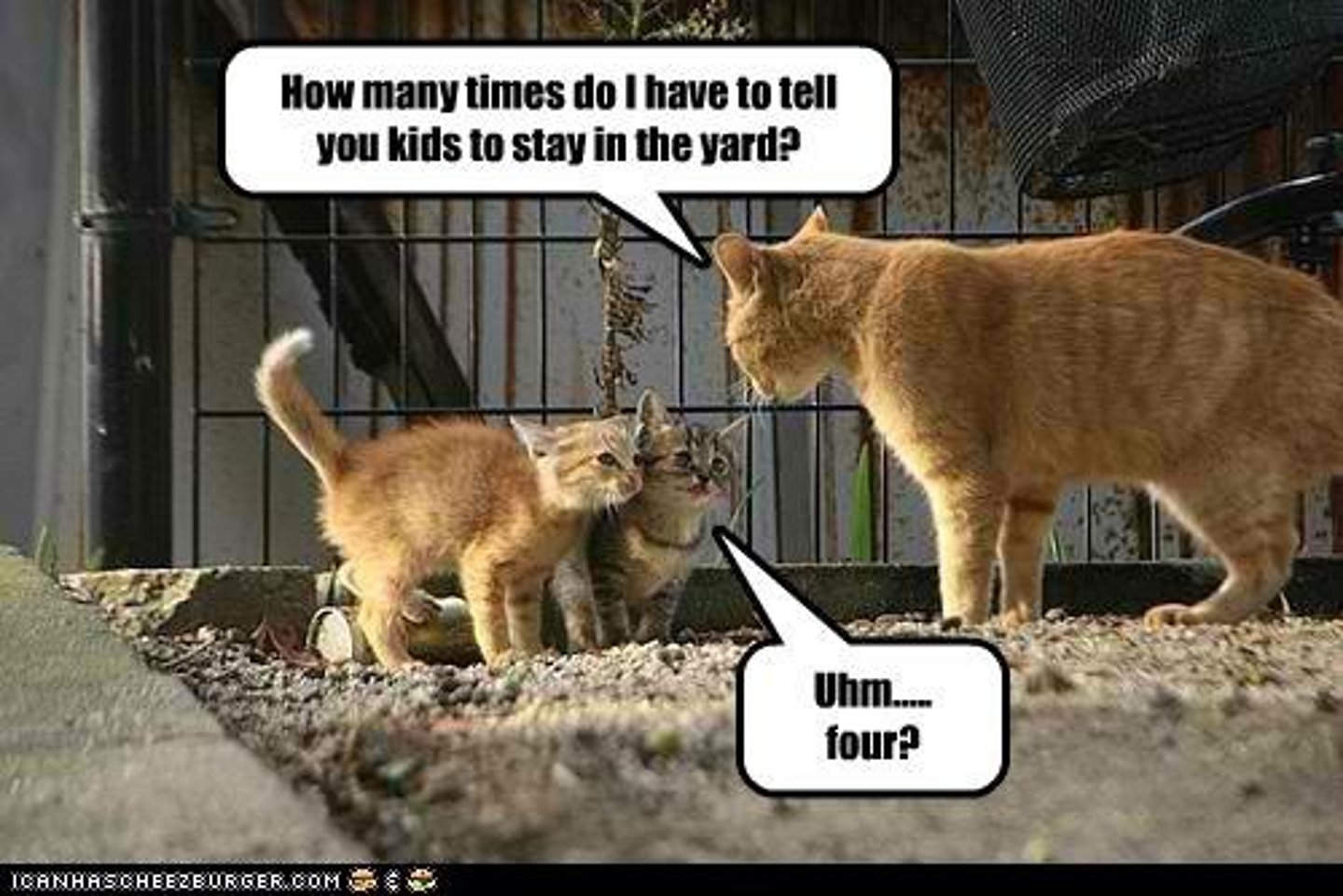Literary Devices
1/35
There's no tags or description
Looks like no tags are added yet.
Name | Mastery | Learn | Test | Matching | Spaced | Call with Kai |
|---|
No analytics yet
Send a link to your students to track their progress
36 Terms
Simile
A comparison between two items using words like or as
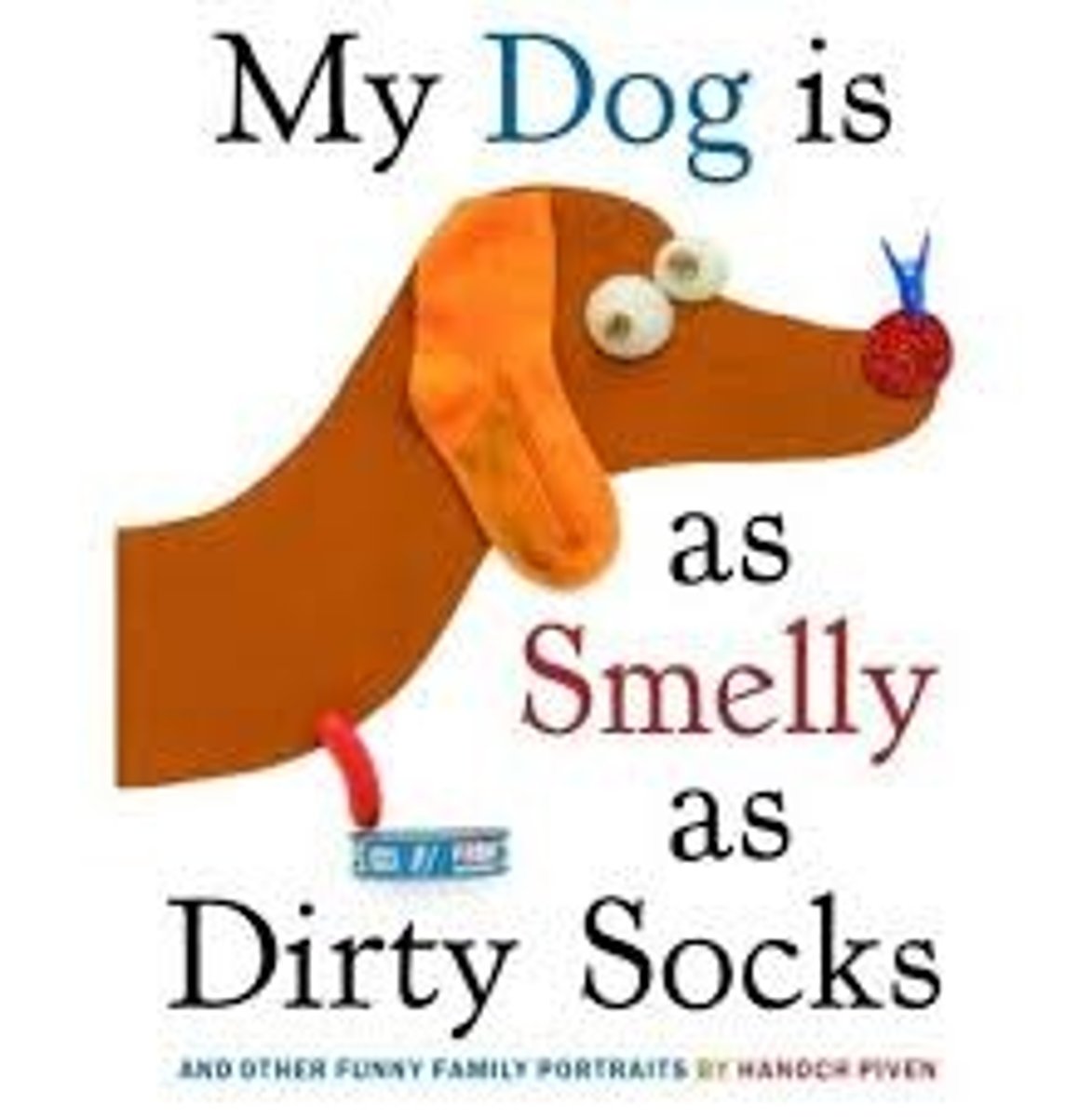
apostrophe
when a character speaks directly to someone who is not present or is dead, or speaks to an inanimate object
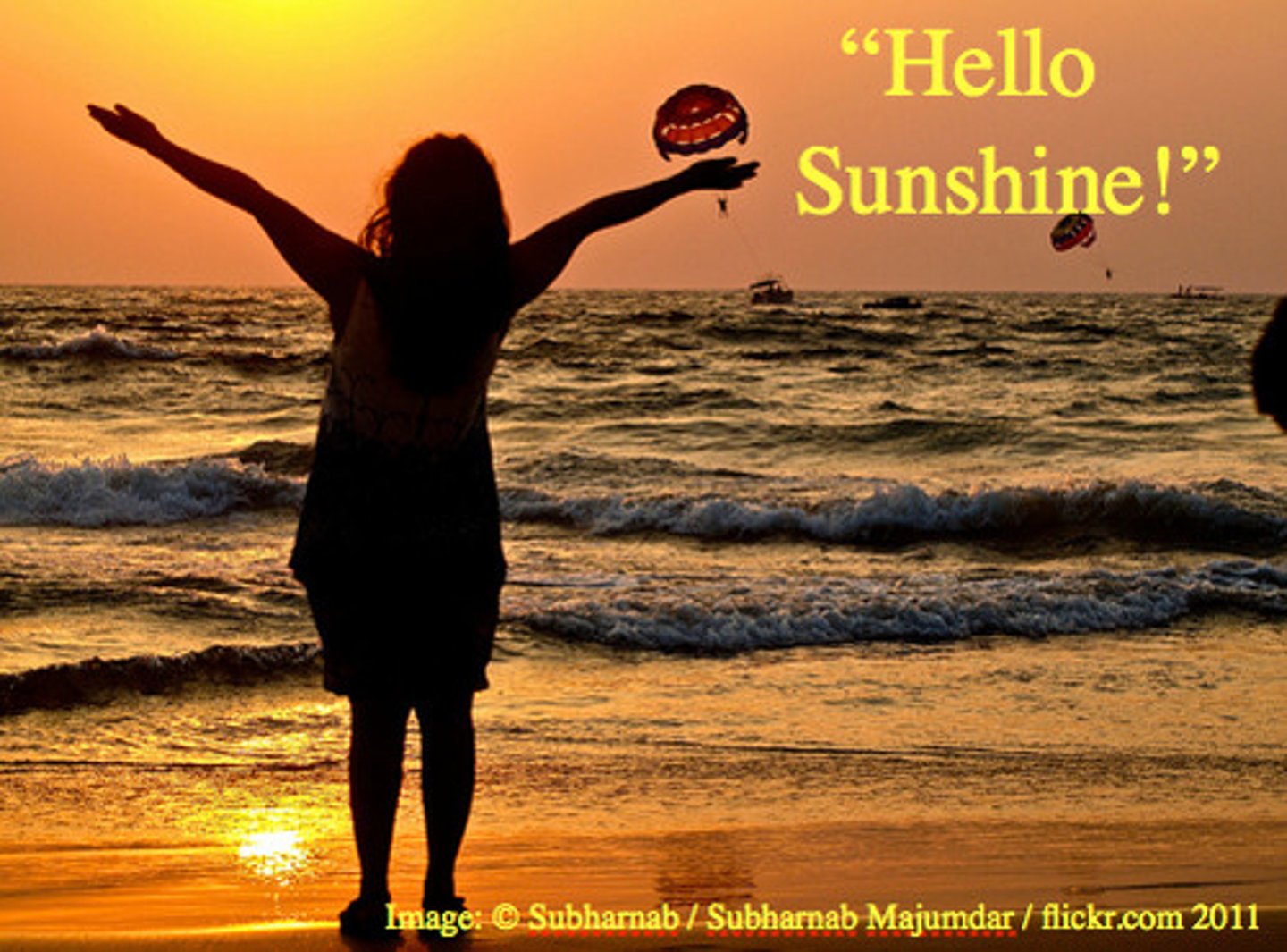
Apostrophe
when a character speaks directly to someone who is not present or is dead, or speaks to an inanimate object
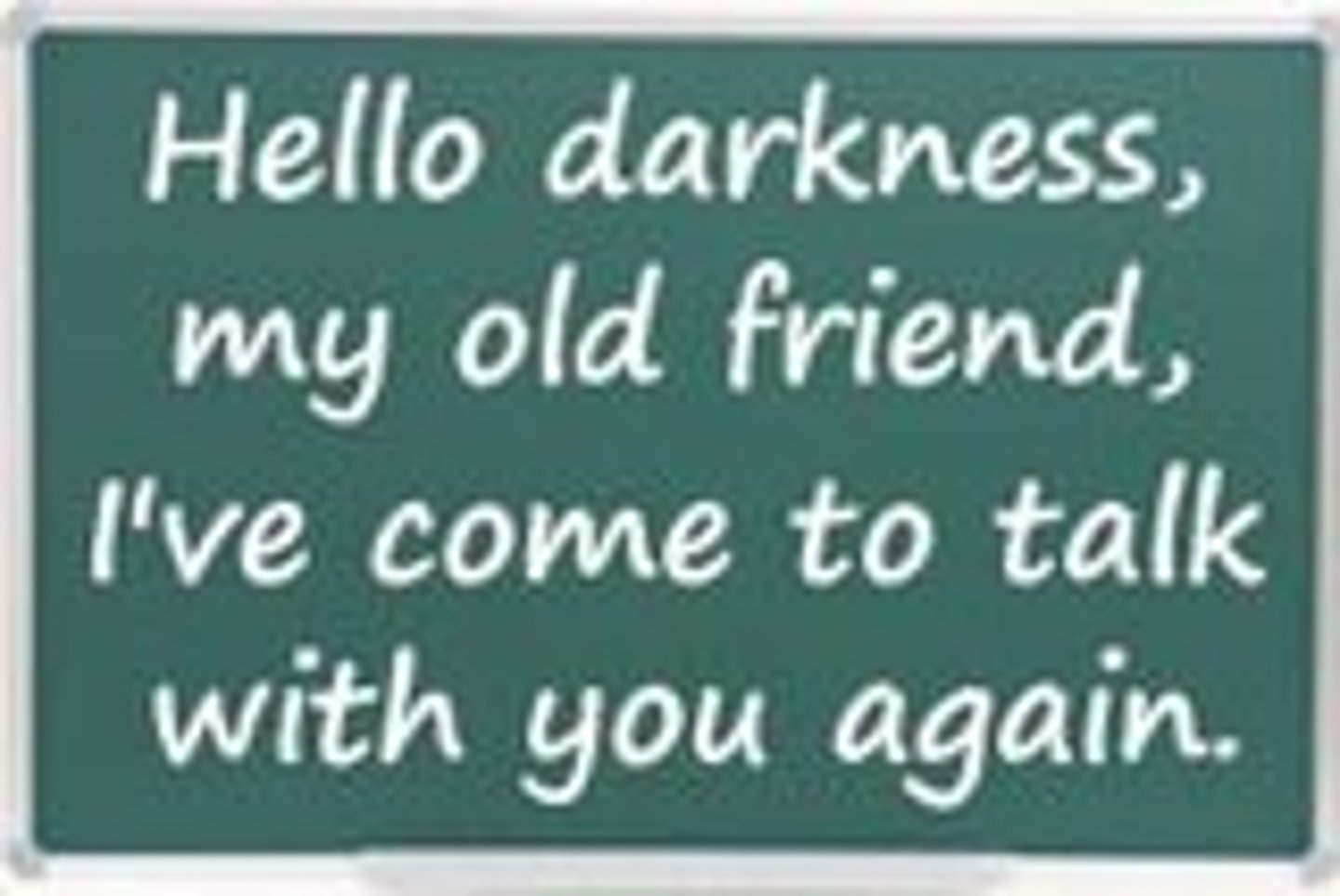
Allusion
Reference to a famous historical, Biblical, mythological, or literary figure or event
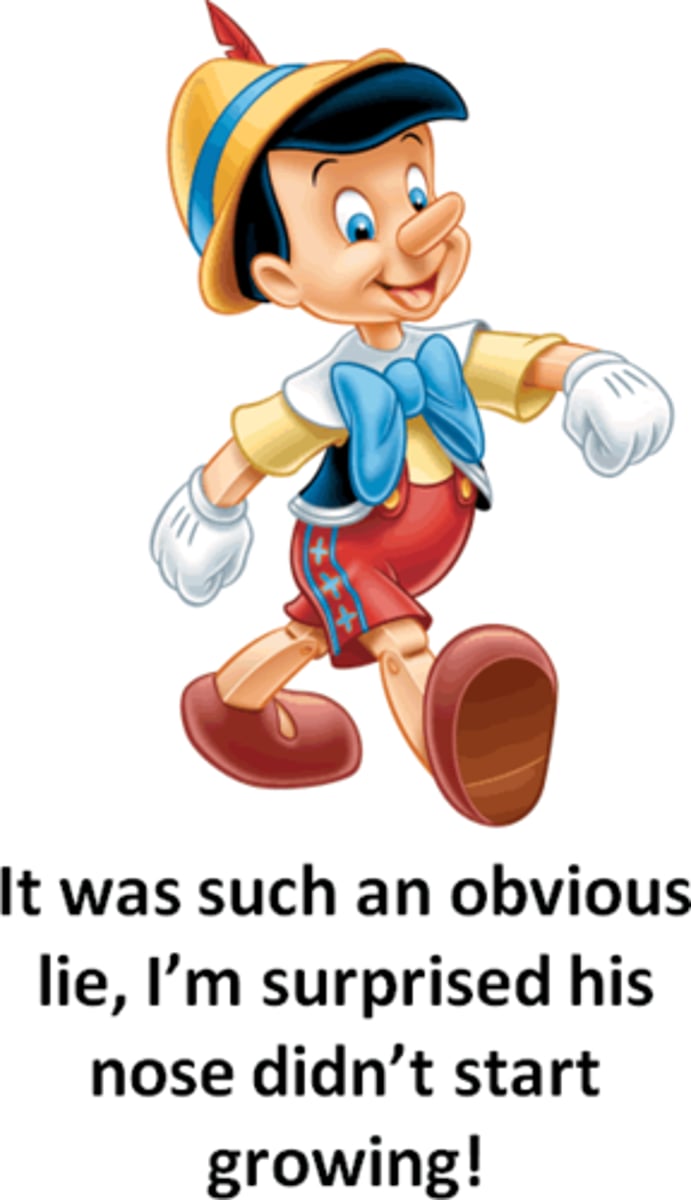
juxtaposition
A literary technique in which 2+ ideas, places, characters, and their actions are placed side by side for the purpose of developing comparisons an contrasts

euphemism
Polite, indirect expressions that replace words and phrases considered harsh and impolite, or which suggest something unpleasant.
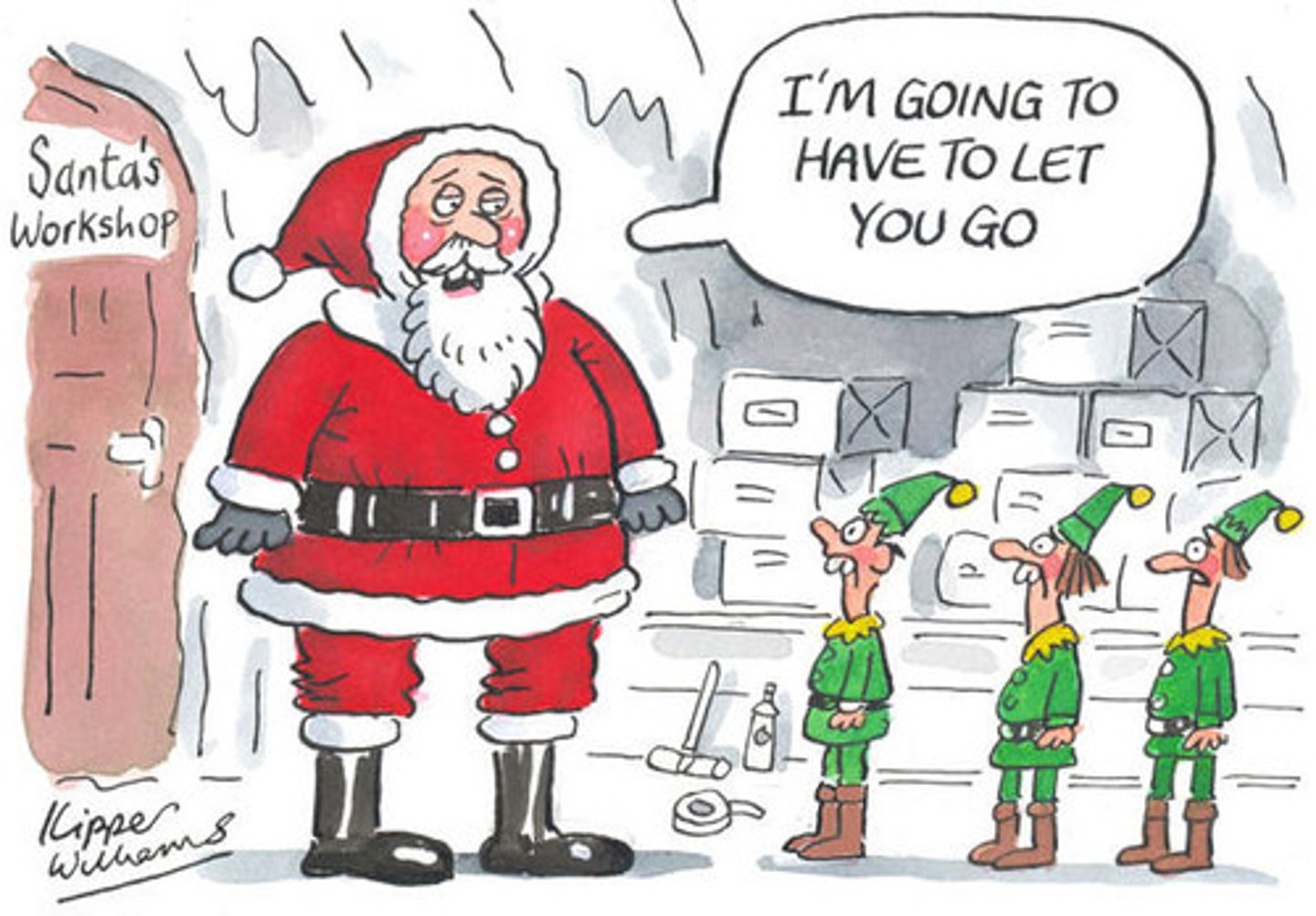
euphemism
Polite, indirect expressions that replace words and phrases considered harsh and impolite, or which suggest something unpleasant.
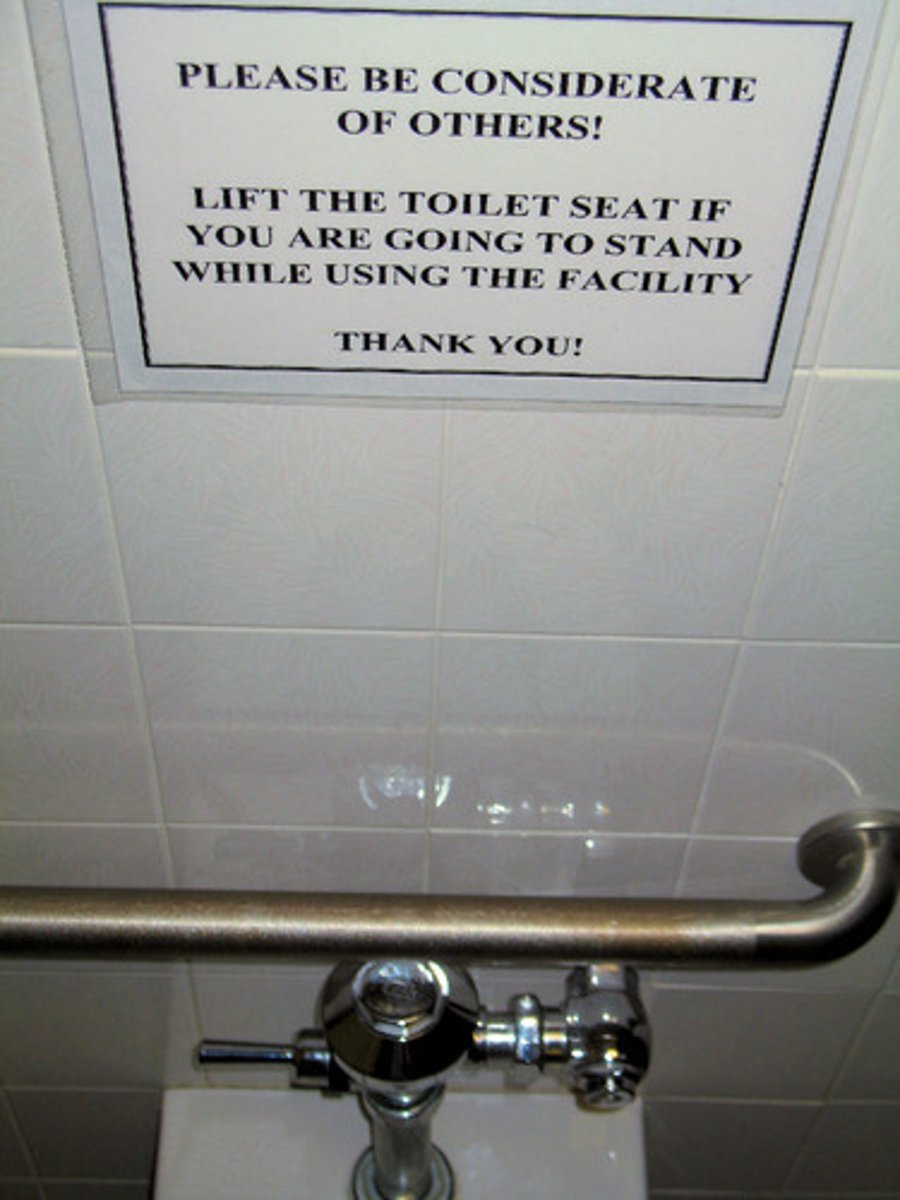
synesthesia
Describes or associates one sense in terms of another, most often in the form of a simile. Sensations of touch, taste, see, hear, and smell are expressed as being intertwined or having a connection between them
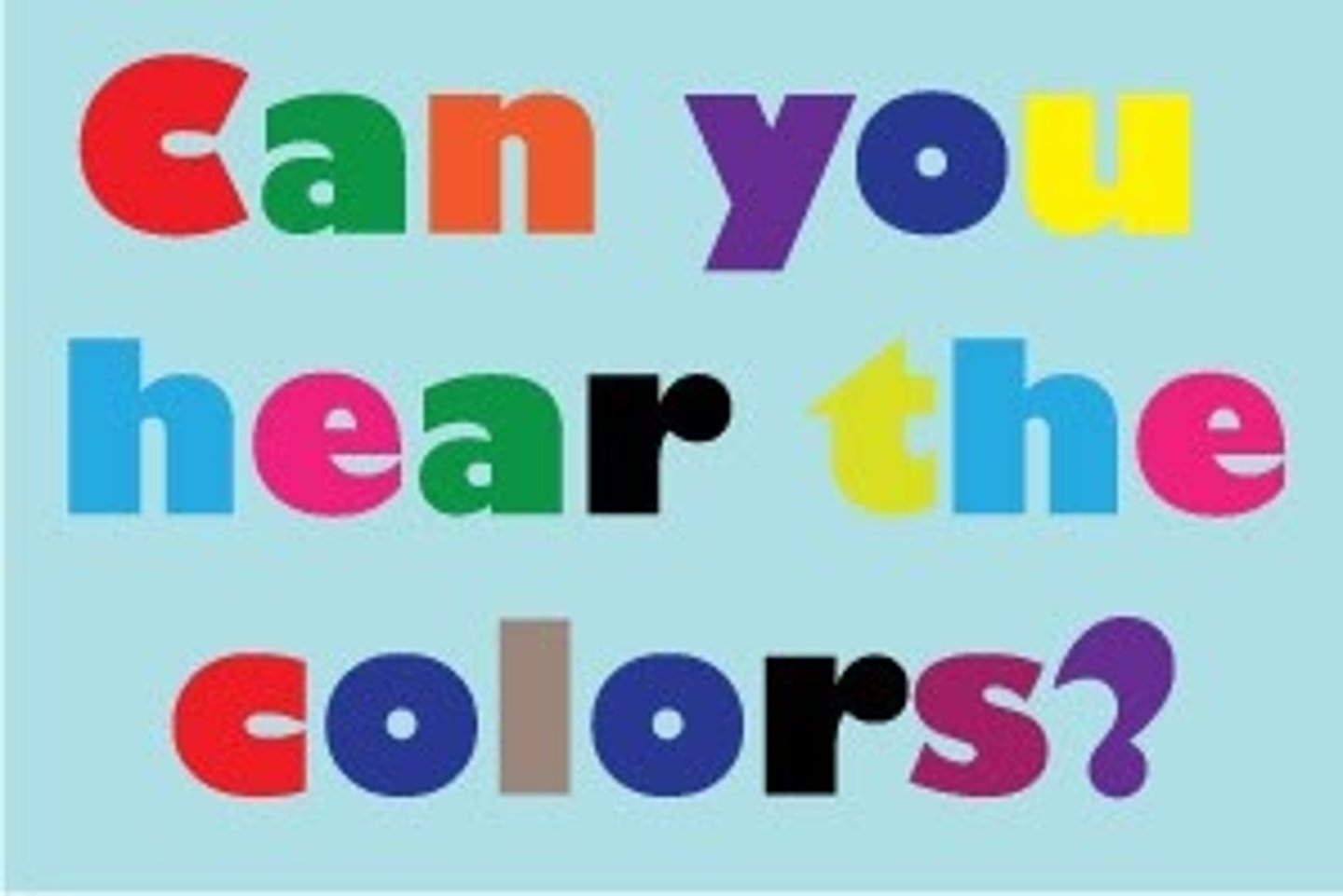
mood
A literary element that evokes certain feelings in readers through words and descriptions
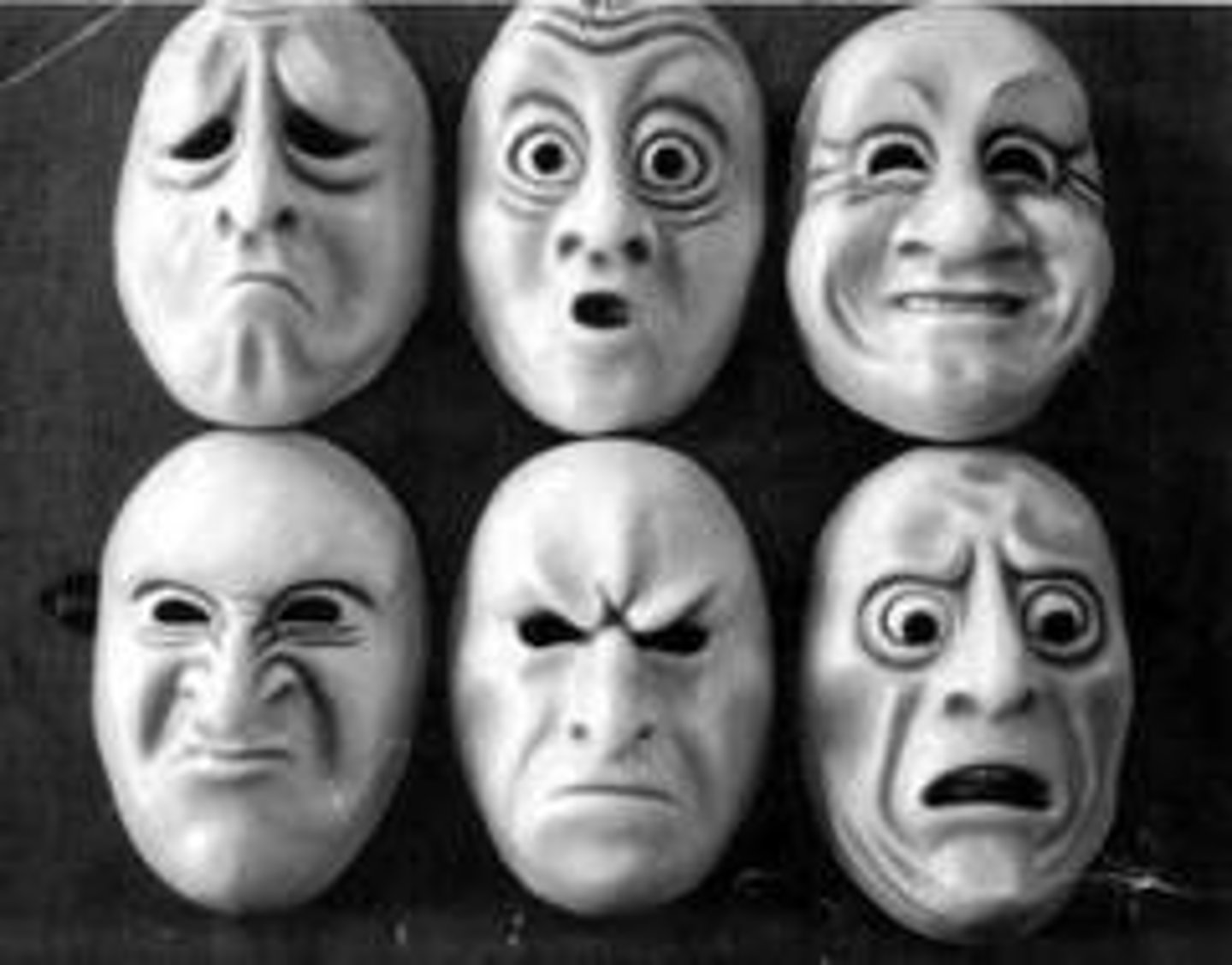
qualifiers
Words or phrases that limit the scope of a claim (usually, in a few cases, under these circumstances)
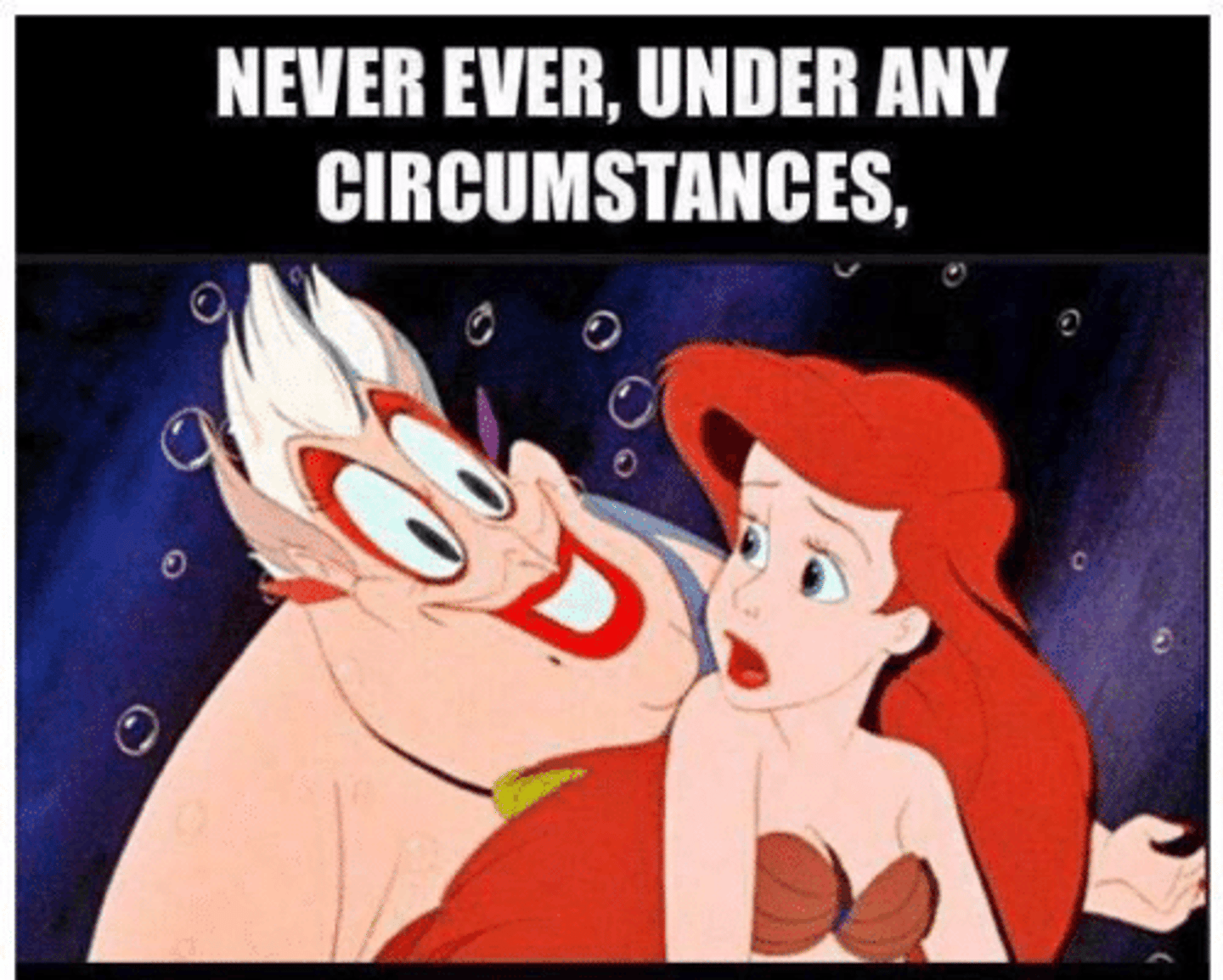
tone
The writer's attitude toward his/her subject
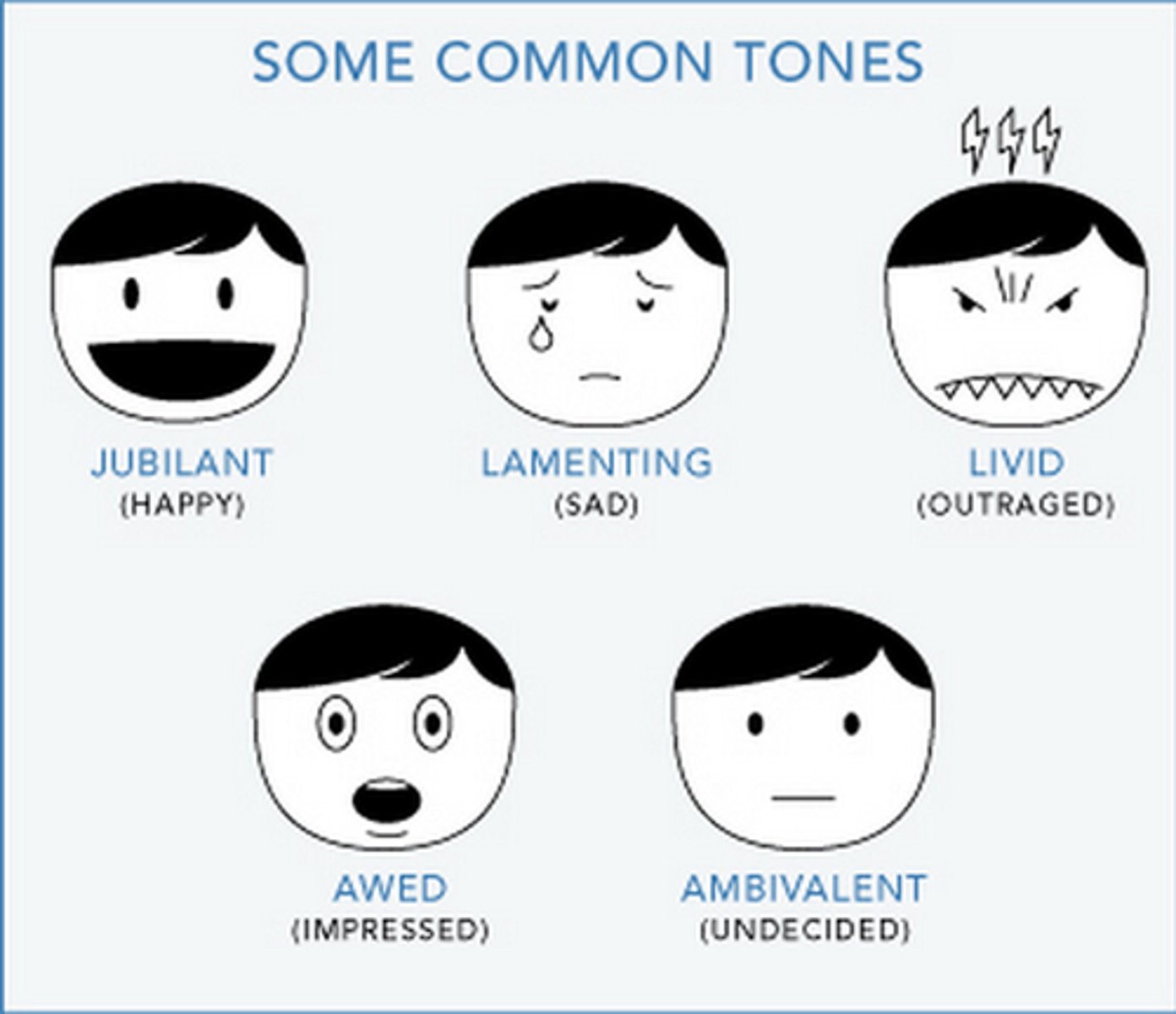
tone
The writer's attitude toward his/her subject
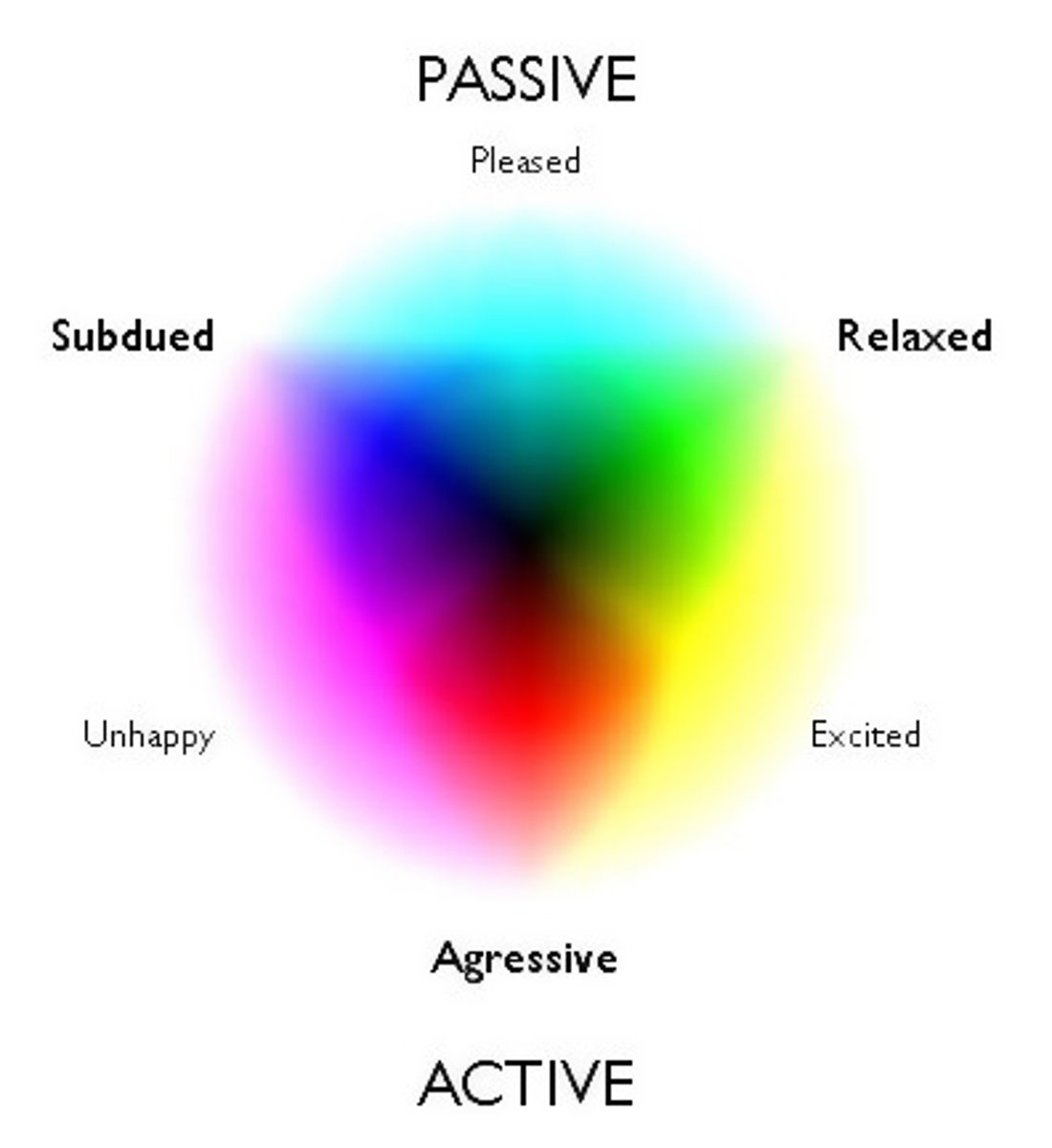
metaphor
A comparison between 2 objects without using the words like or as
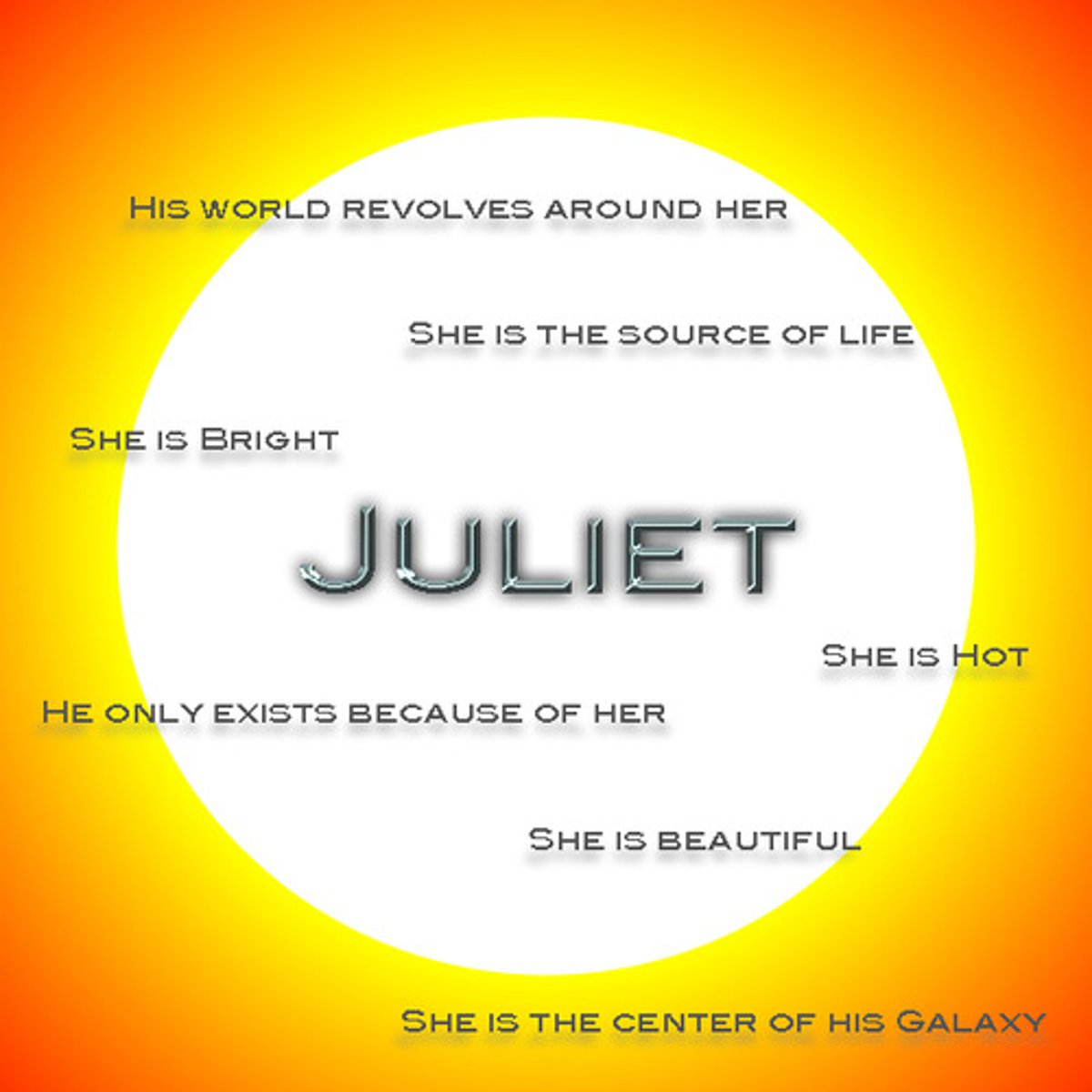
metaphor
A comparison between 2 objects without using the words like or as
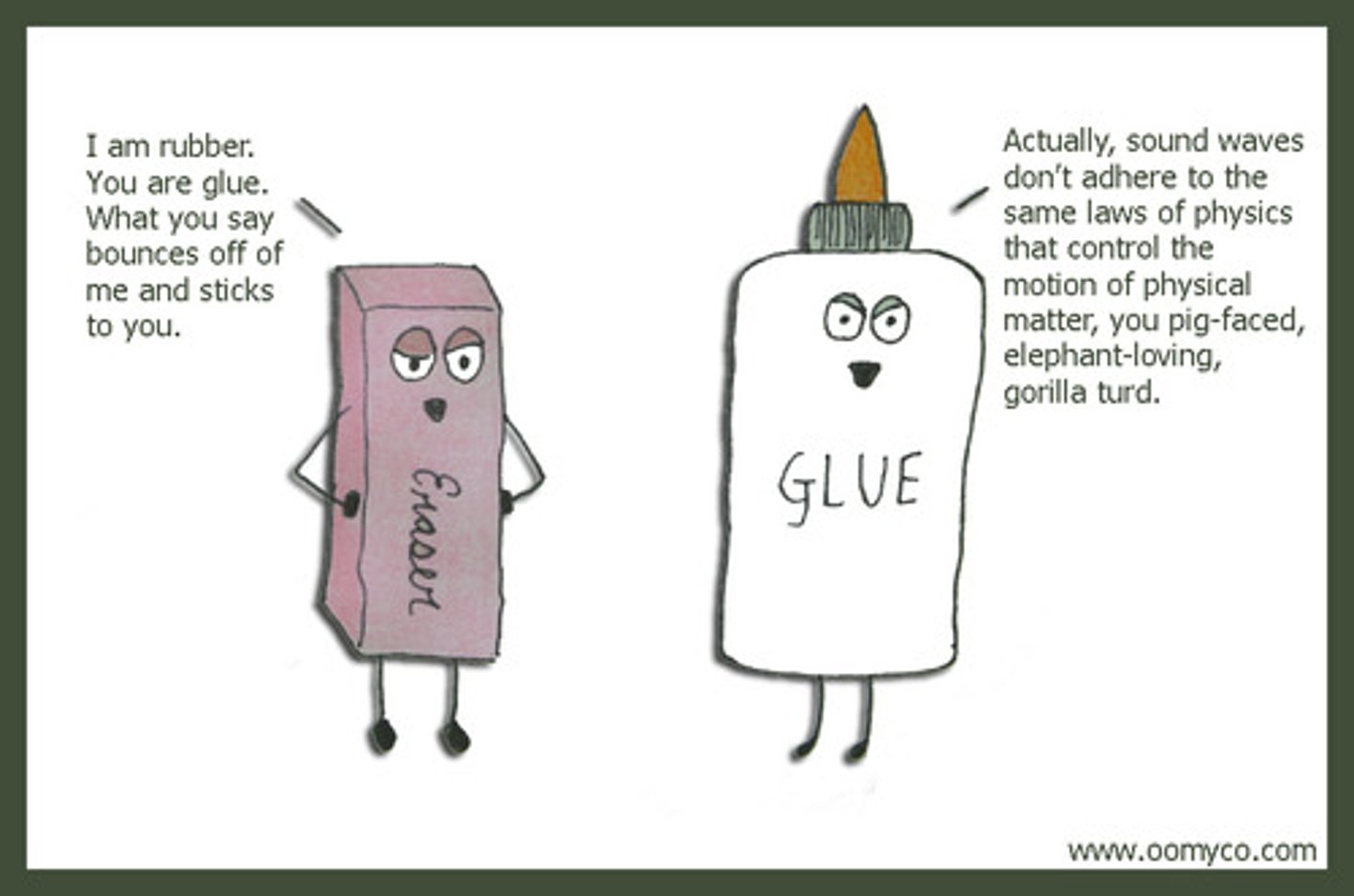
epistrophe
A stylistic device that can be defined as the repetition of phrases or words at the ends of the clauses or sentences
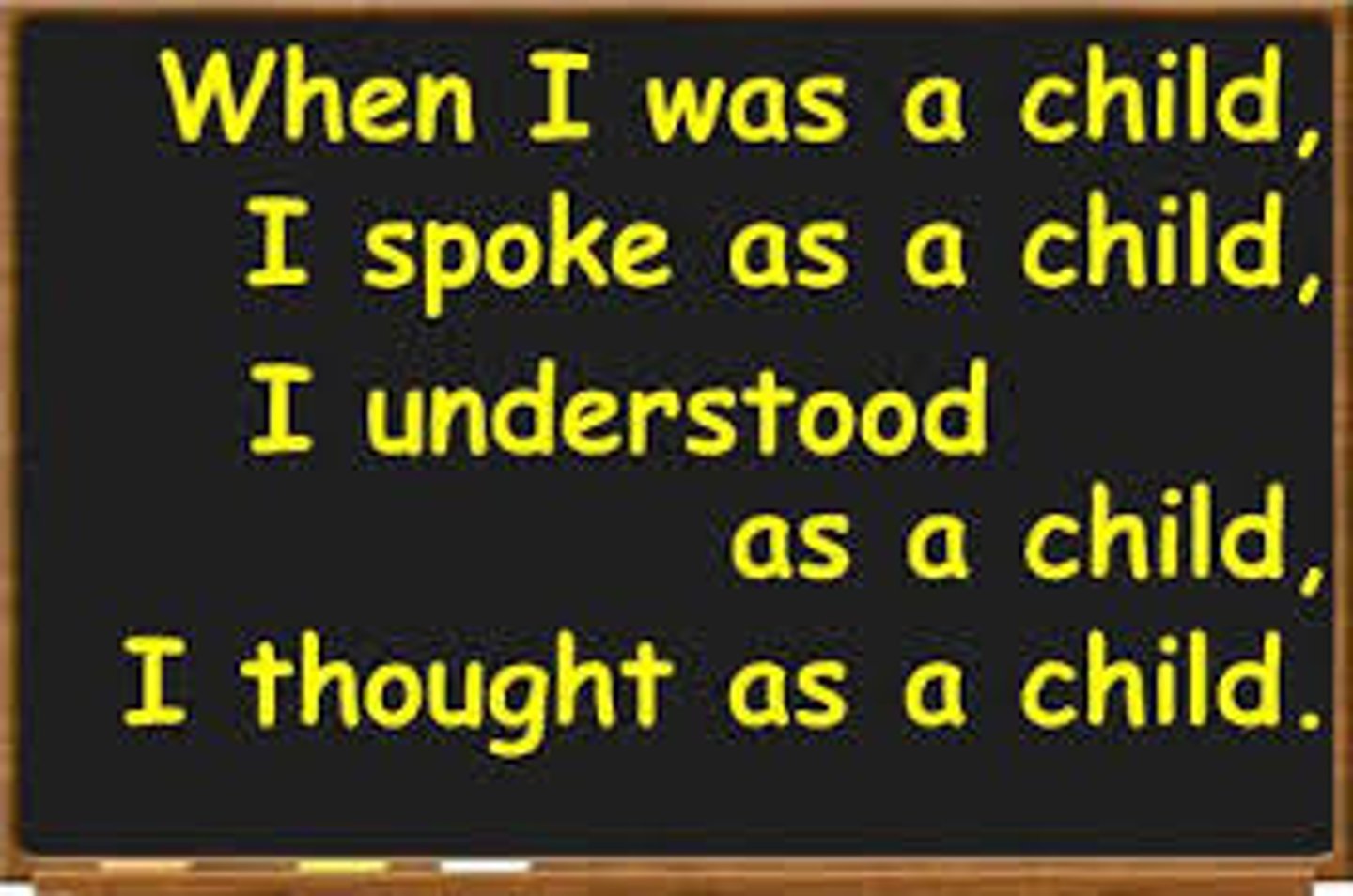
hypophora
A figure of speech in which the writer raises a question, and then immediately provides an answer to that question
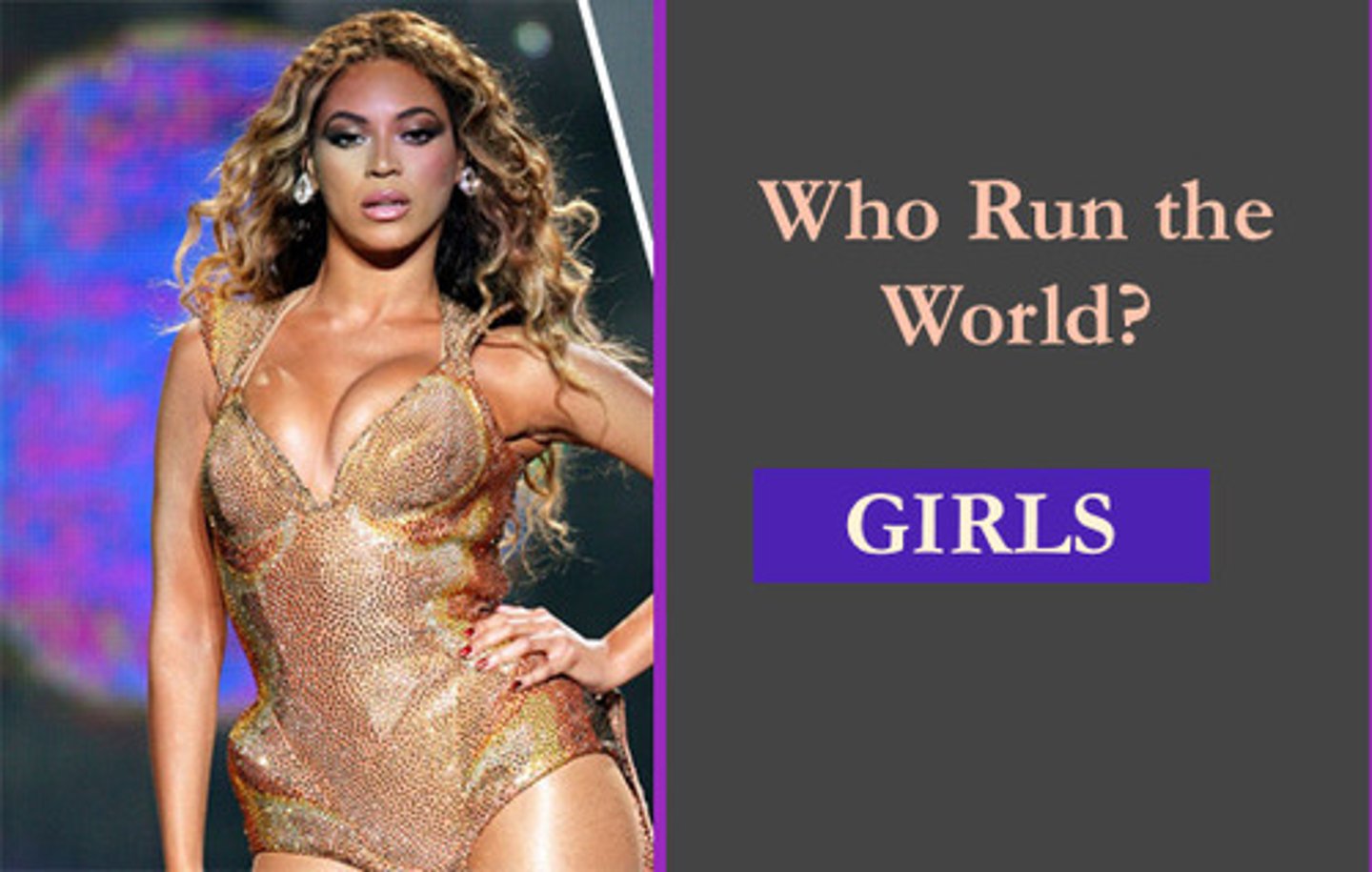
hypophora
A figure of speech in which the writer raises a question, and then immediately provides an answer to that question
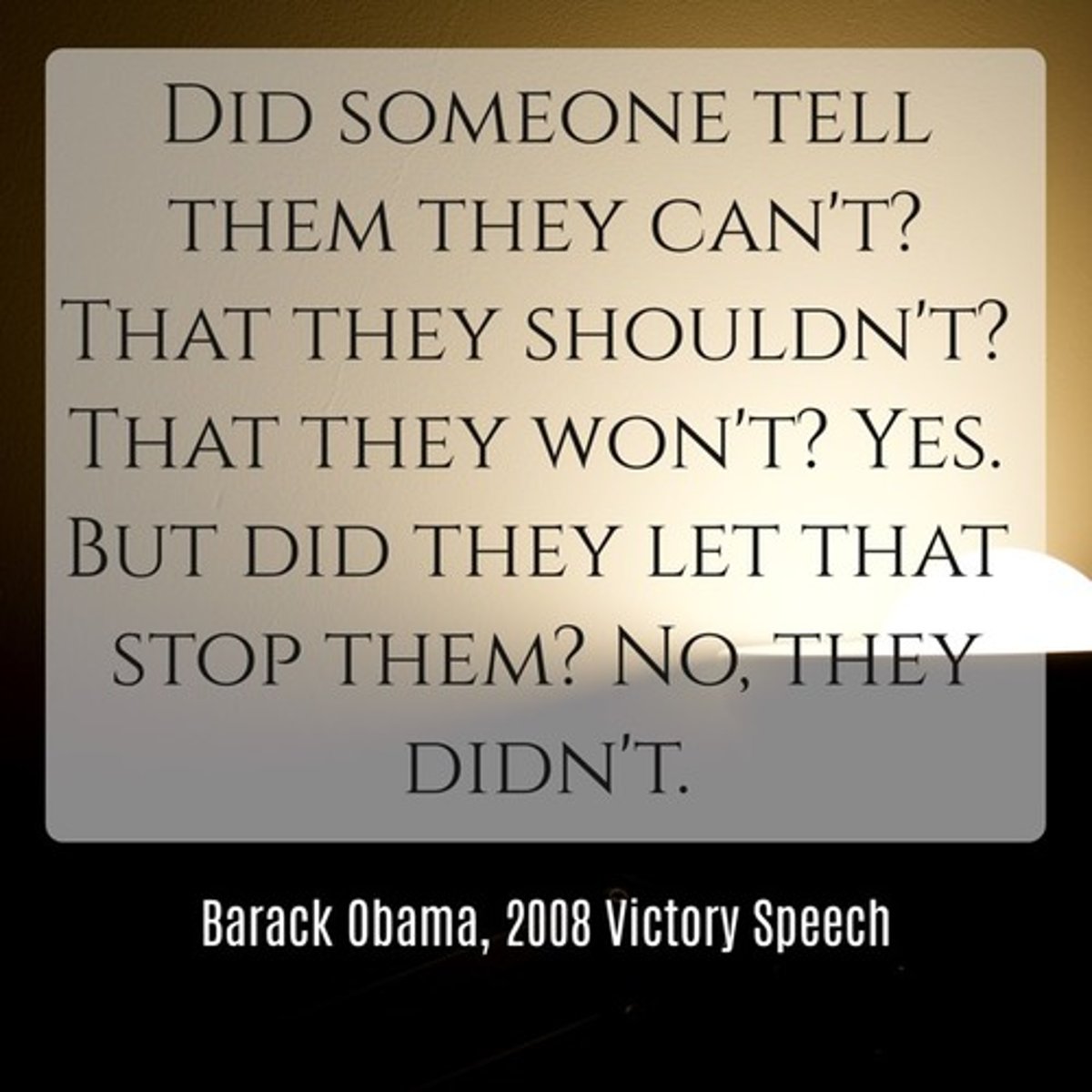
inductive reasoning
reasoning from specific to general
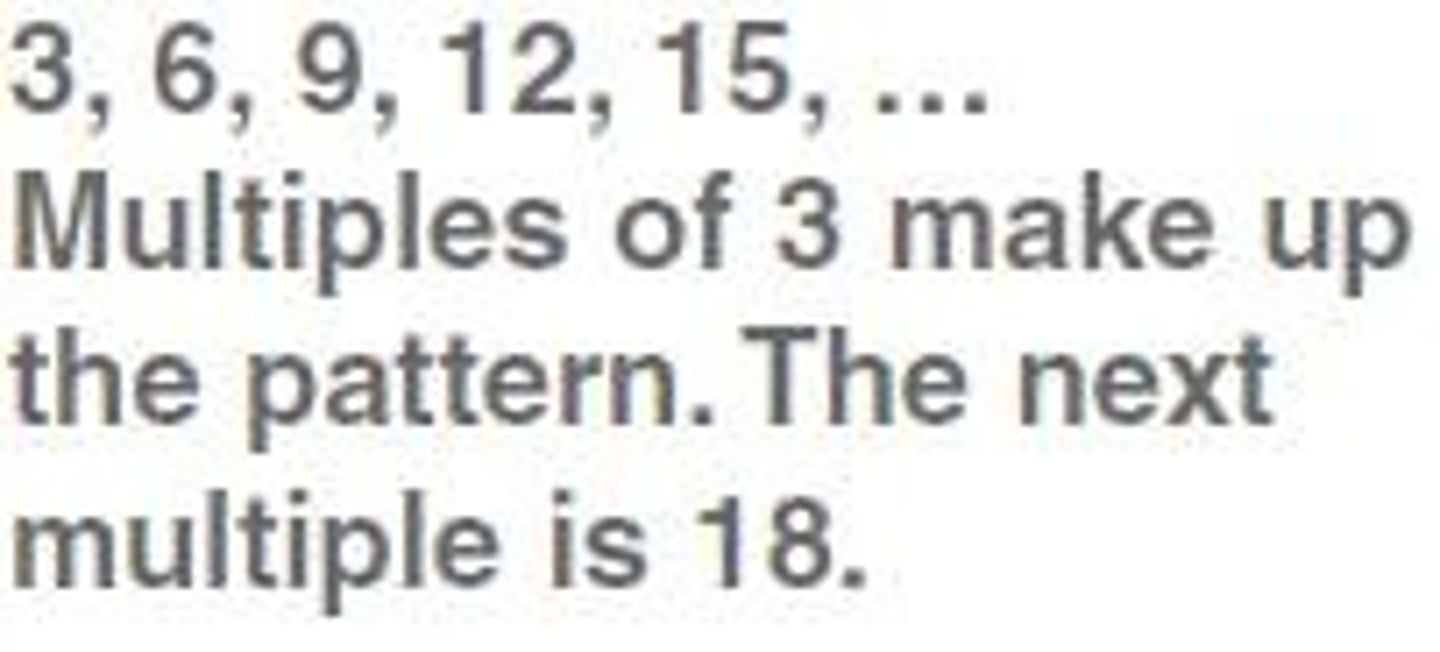
deductive reasoning
reasoning from general to specific
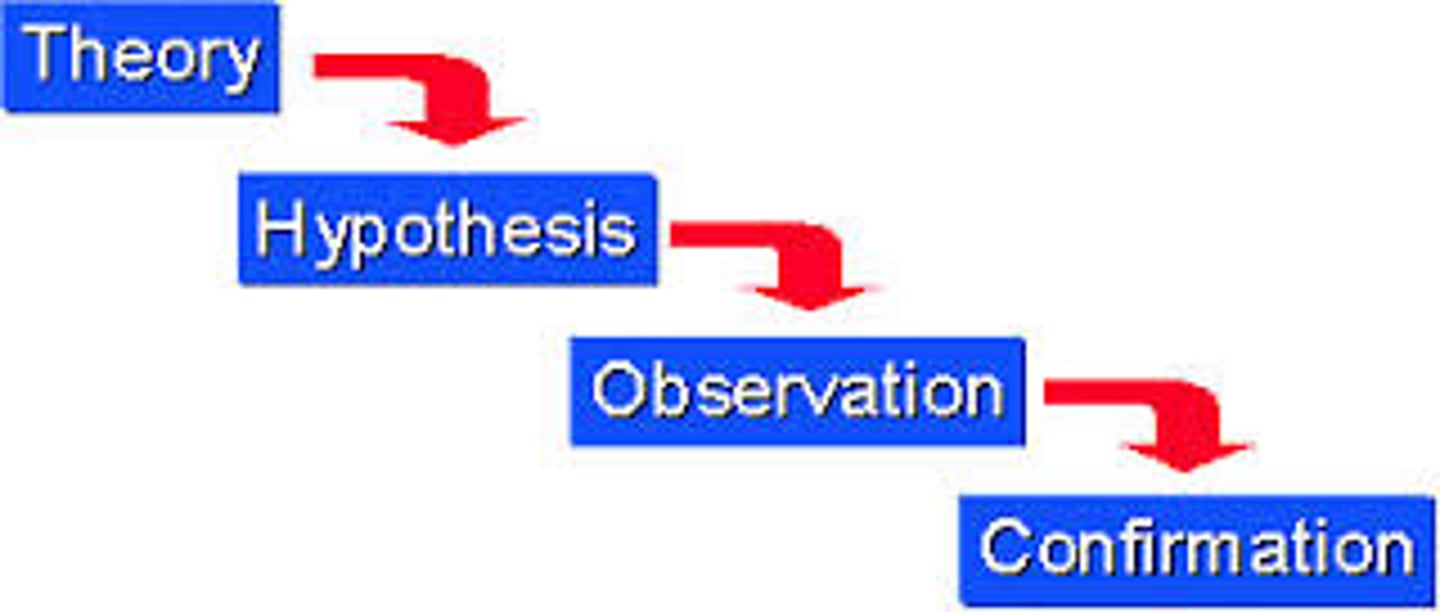
anecdote
a short and amusing or interesting story about a real incident or person used to support a speaker's argument
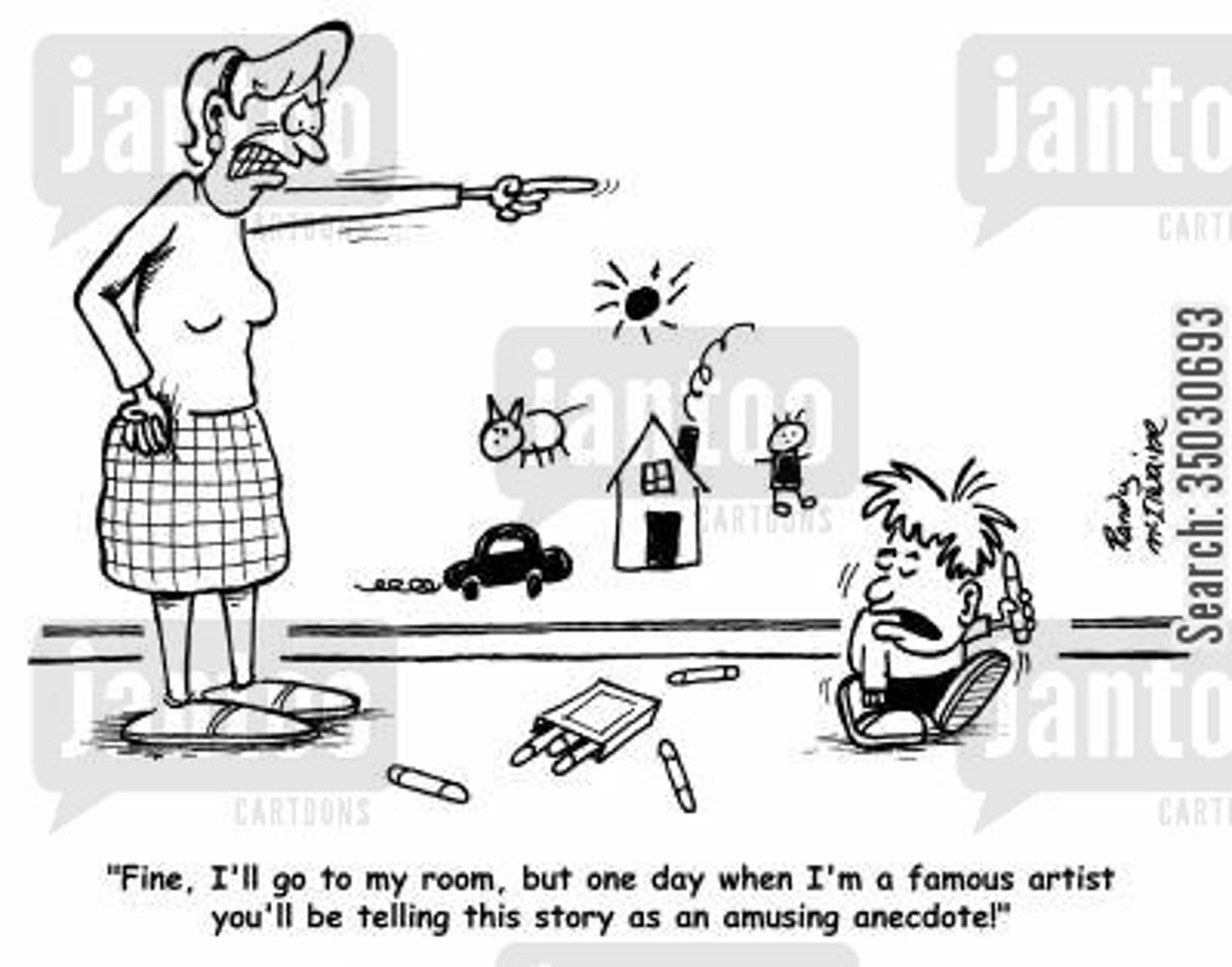
anaphora
repetition of a word or phrase at the beginning of successive phrases, clauses, sentences, or paragraphs
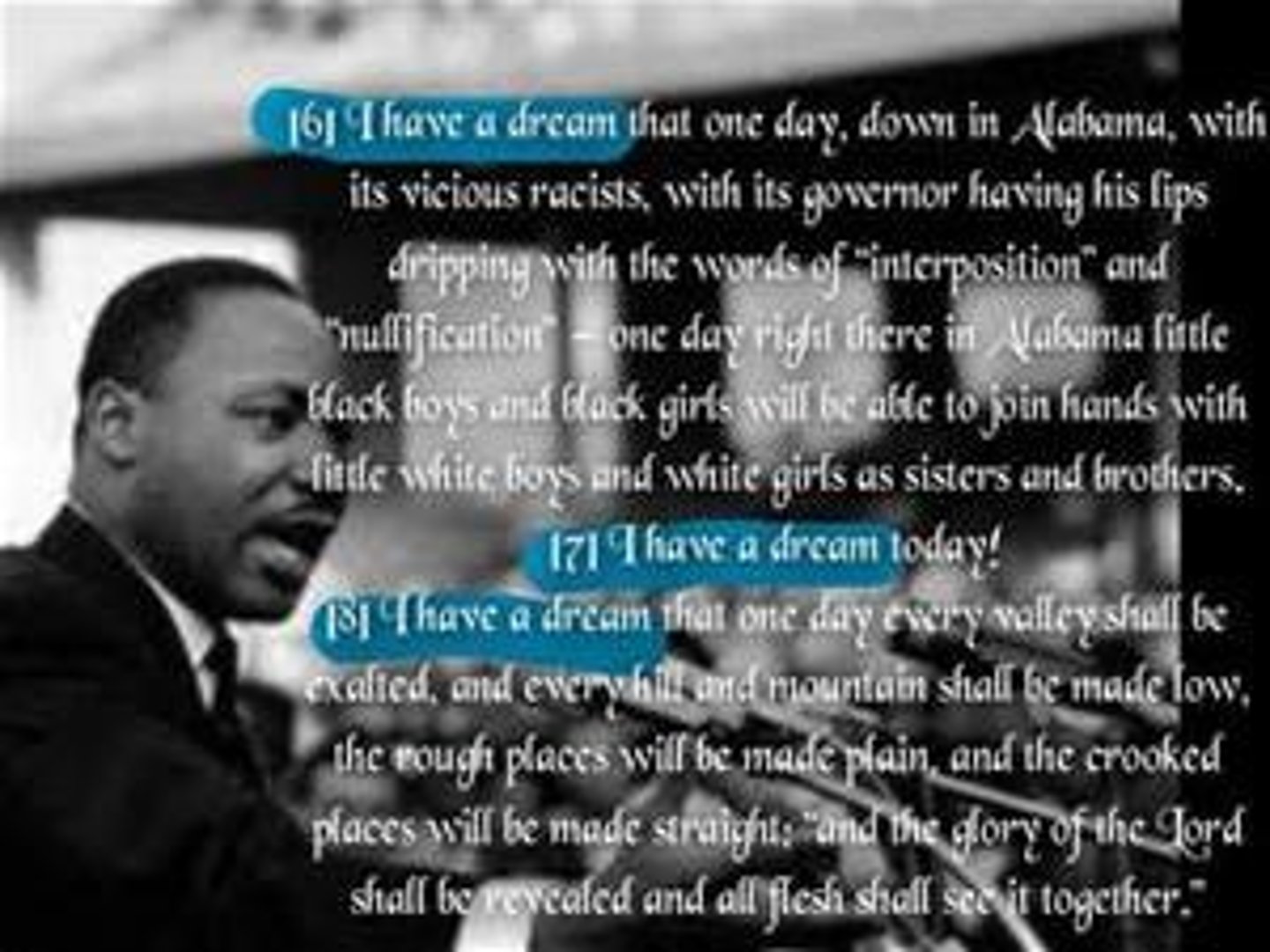
diction
word choice
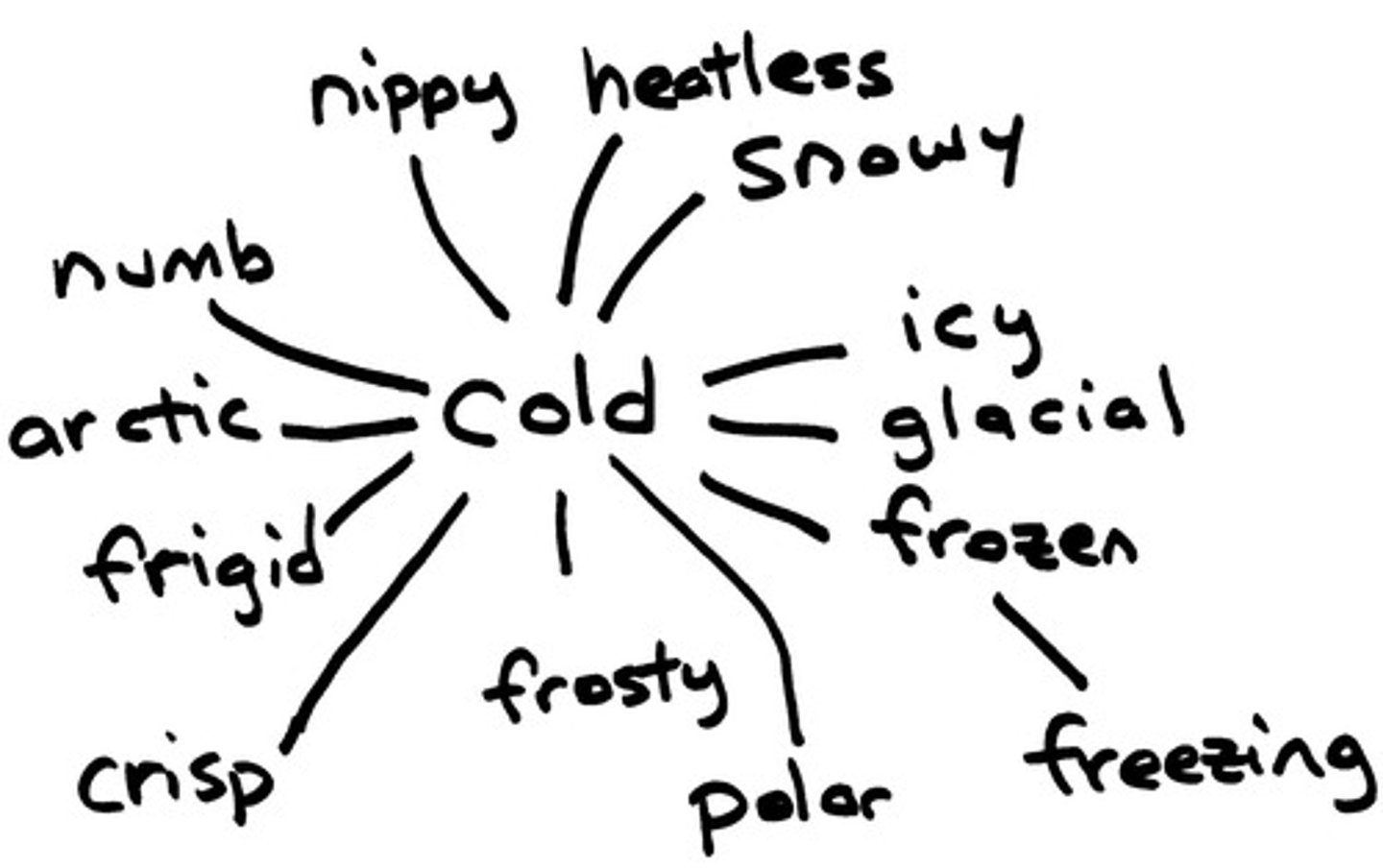
polysendeton
addition and emphasis through use of 1+ conjunctions (and, or, but, for, nor, so, yet) not normally found in successive words or clauses
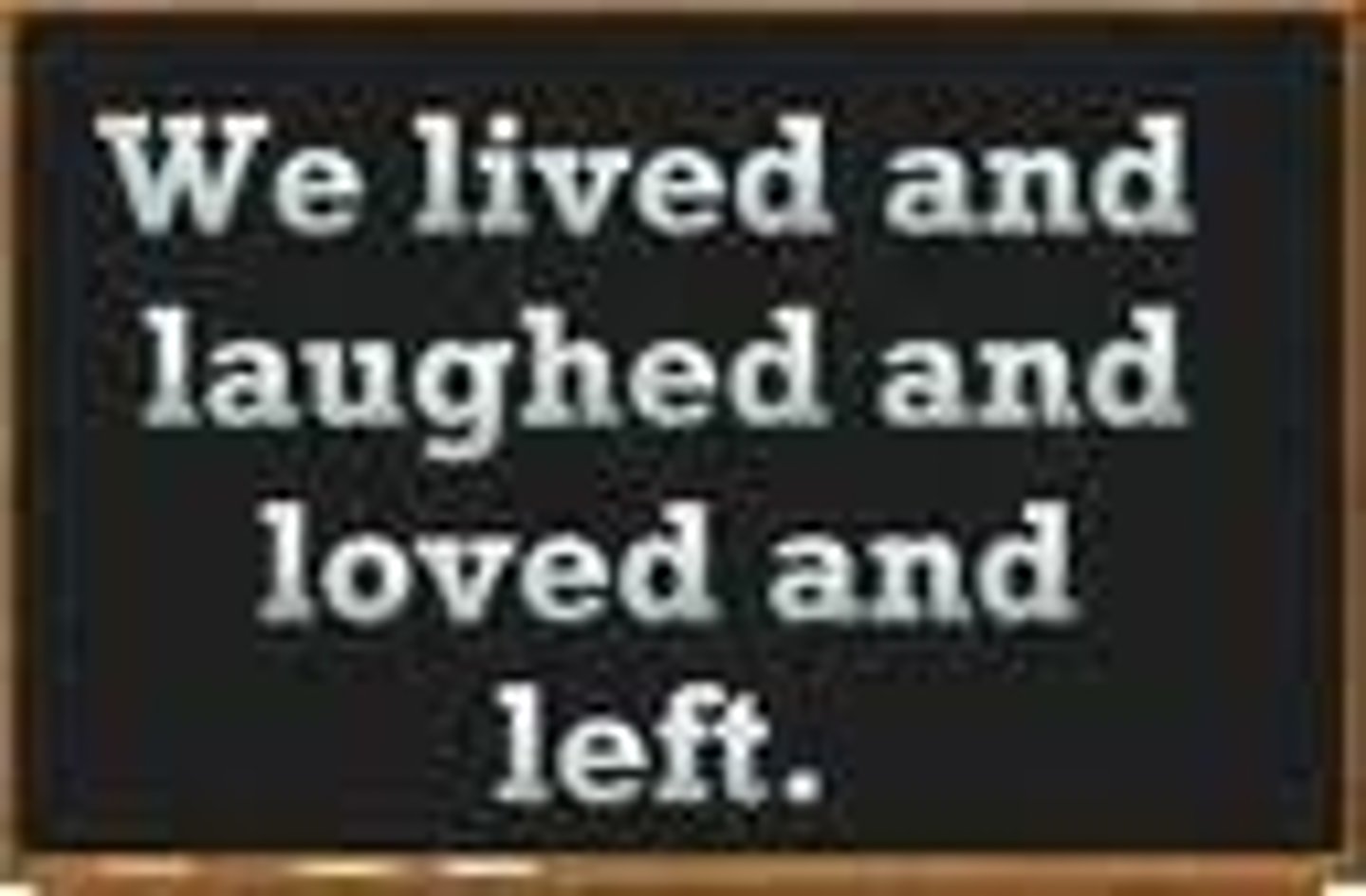
expletive
A single word or short phrase, usually interrupting normal speech, is used to lend emphasis to the words on either side of the figure

personification
A figure of speech in which an animal, an object, a force or nature, or an idea is given human characteristics
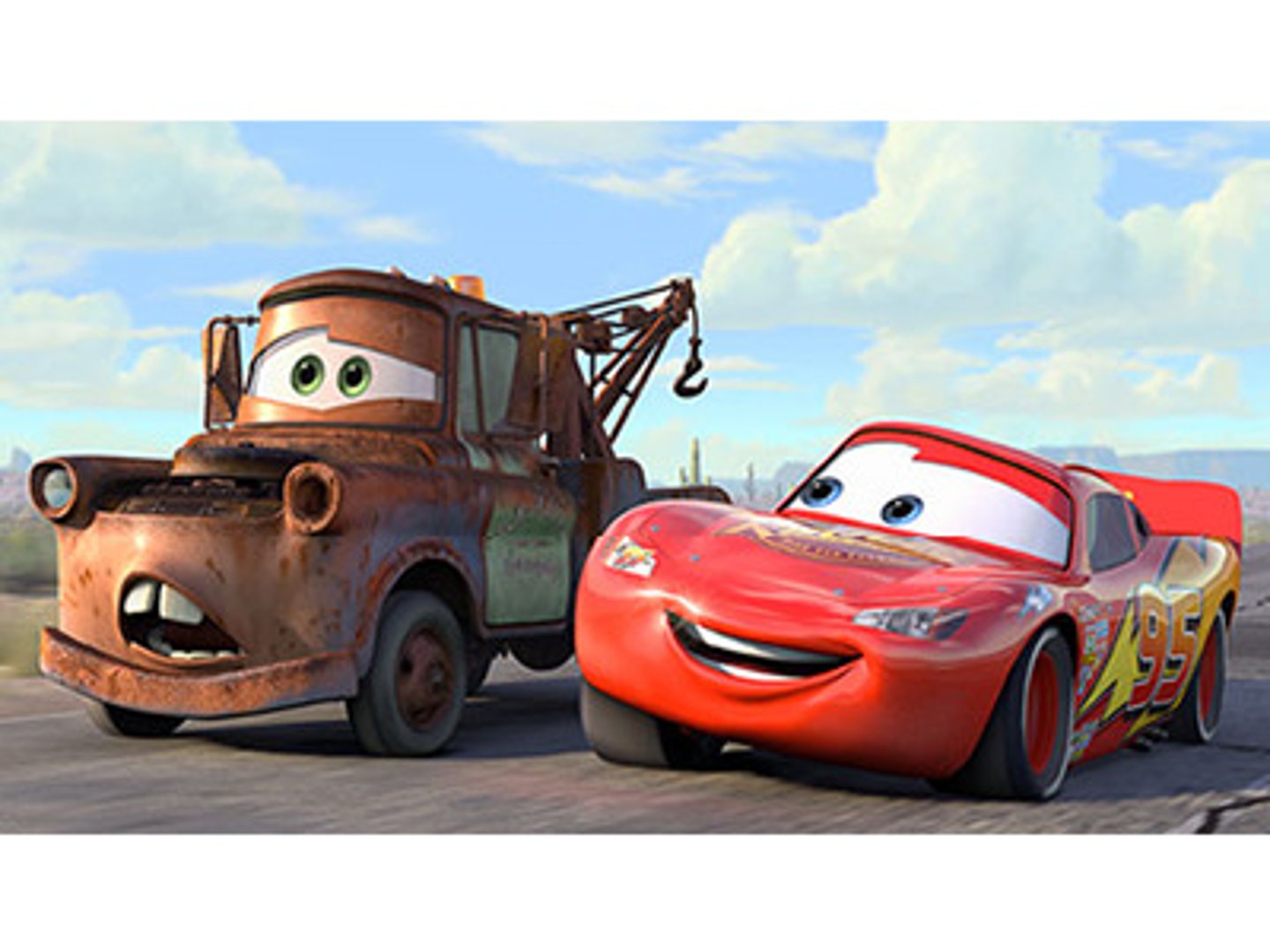
enumeration
figure of amplification in which a subject is divided into constituent parts or details, and may include a listing of causes, effects, problems, solutions, conditions, and consequences
a list of words, phrases or clauses, sometimes numbered or bulleted
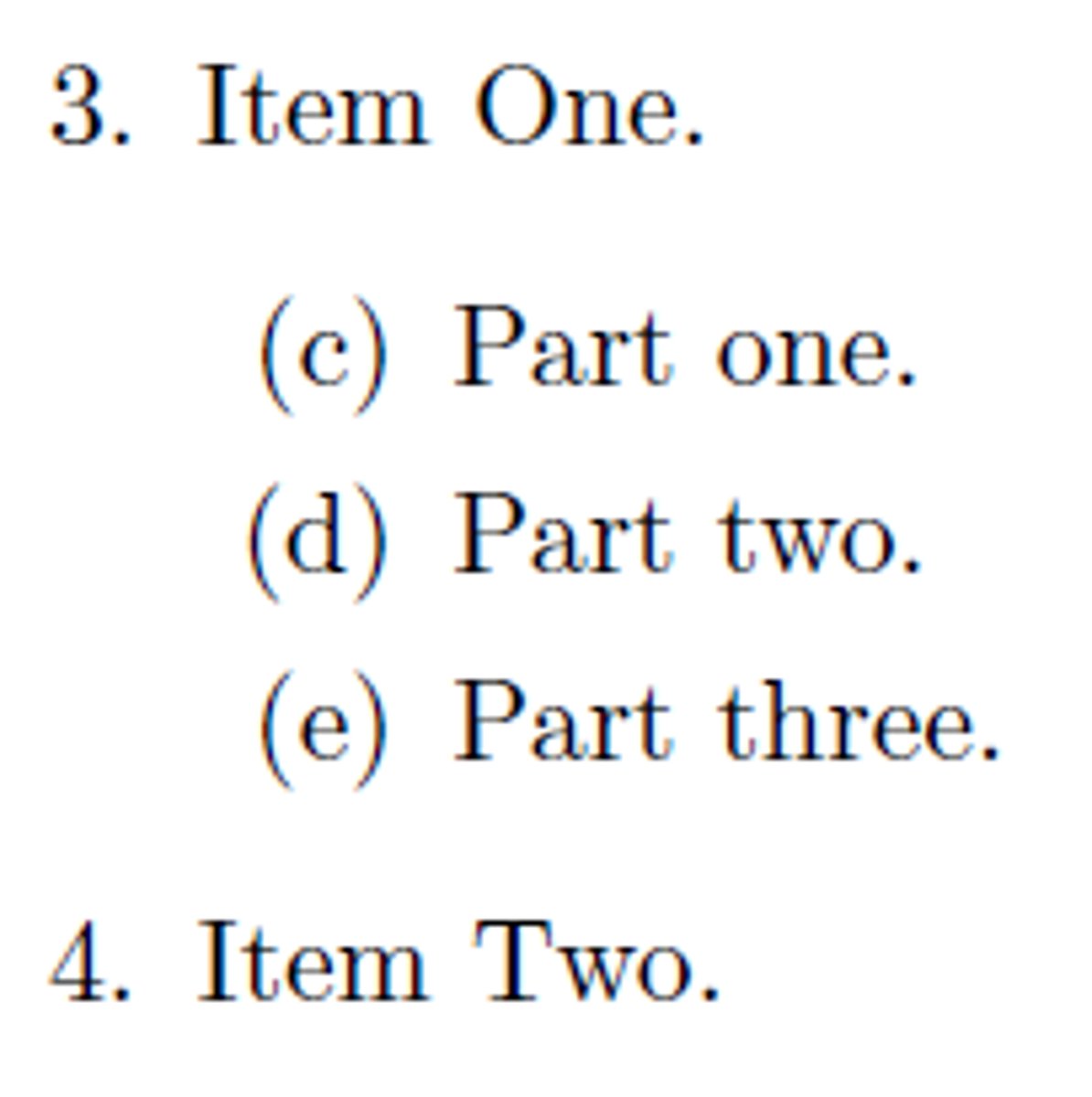
antithesis
a rhetorical strategy where contrasting ideas are intentionally juxtaposed in adjacent phrases, clauses, or sentences
when two opposite ideas are put together in a sentence to achieve a contrasting effect
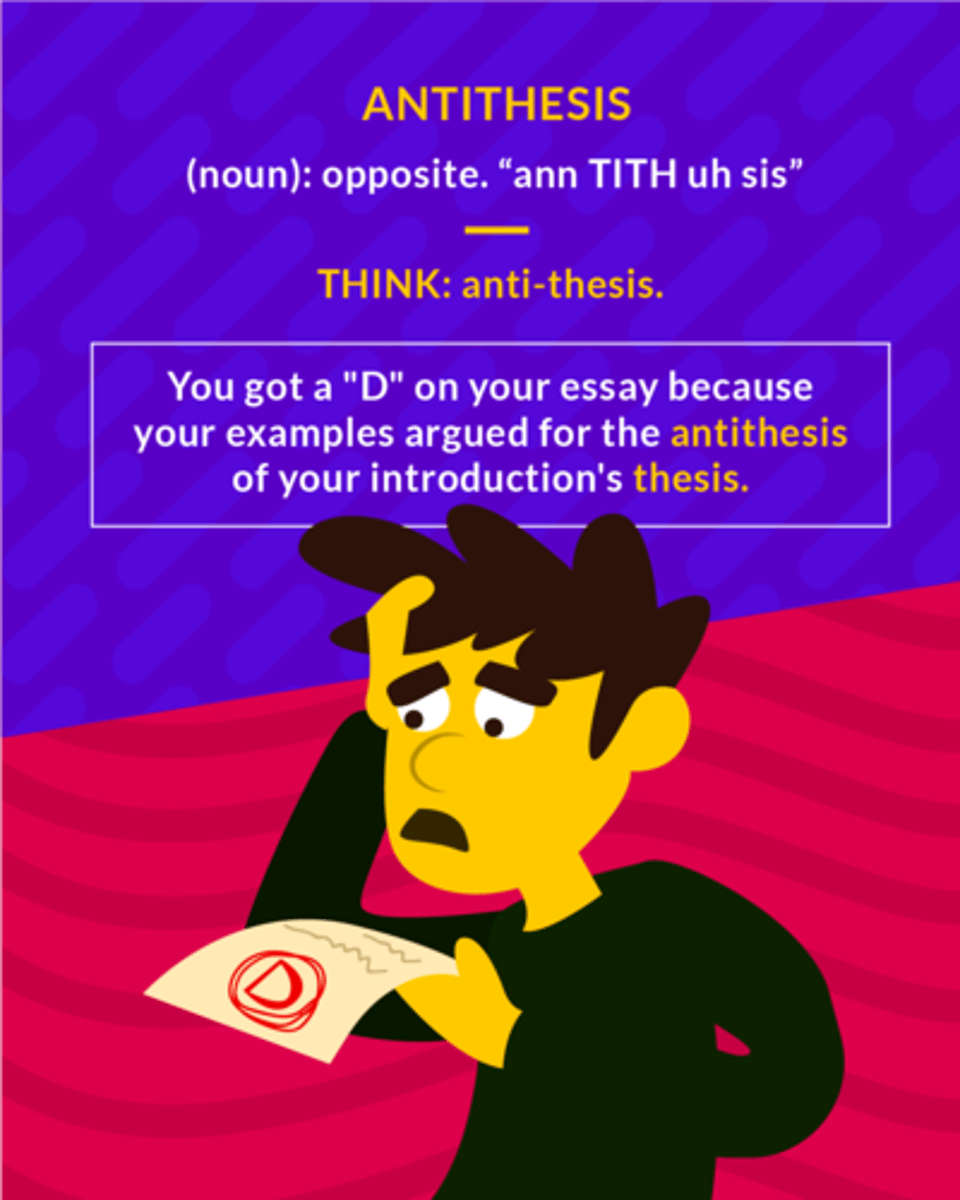
antithesis
a rhetorical strategy where contrasting ideas are intentionally juxtaposed in adjacent phrases, clauses, or sentences
when two opposite ideas are put together in a sentence to achieve a contrasting effect
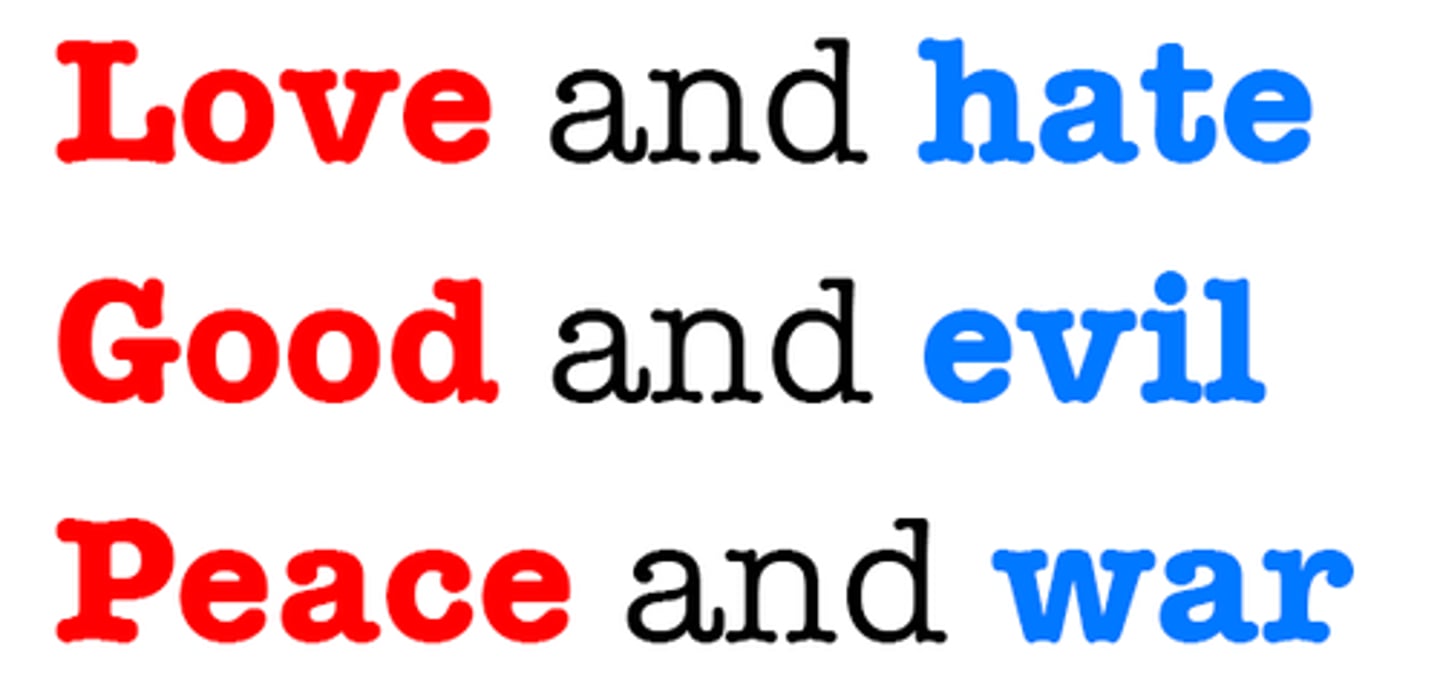
syntax
sentence length, type, and structure
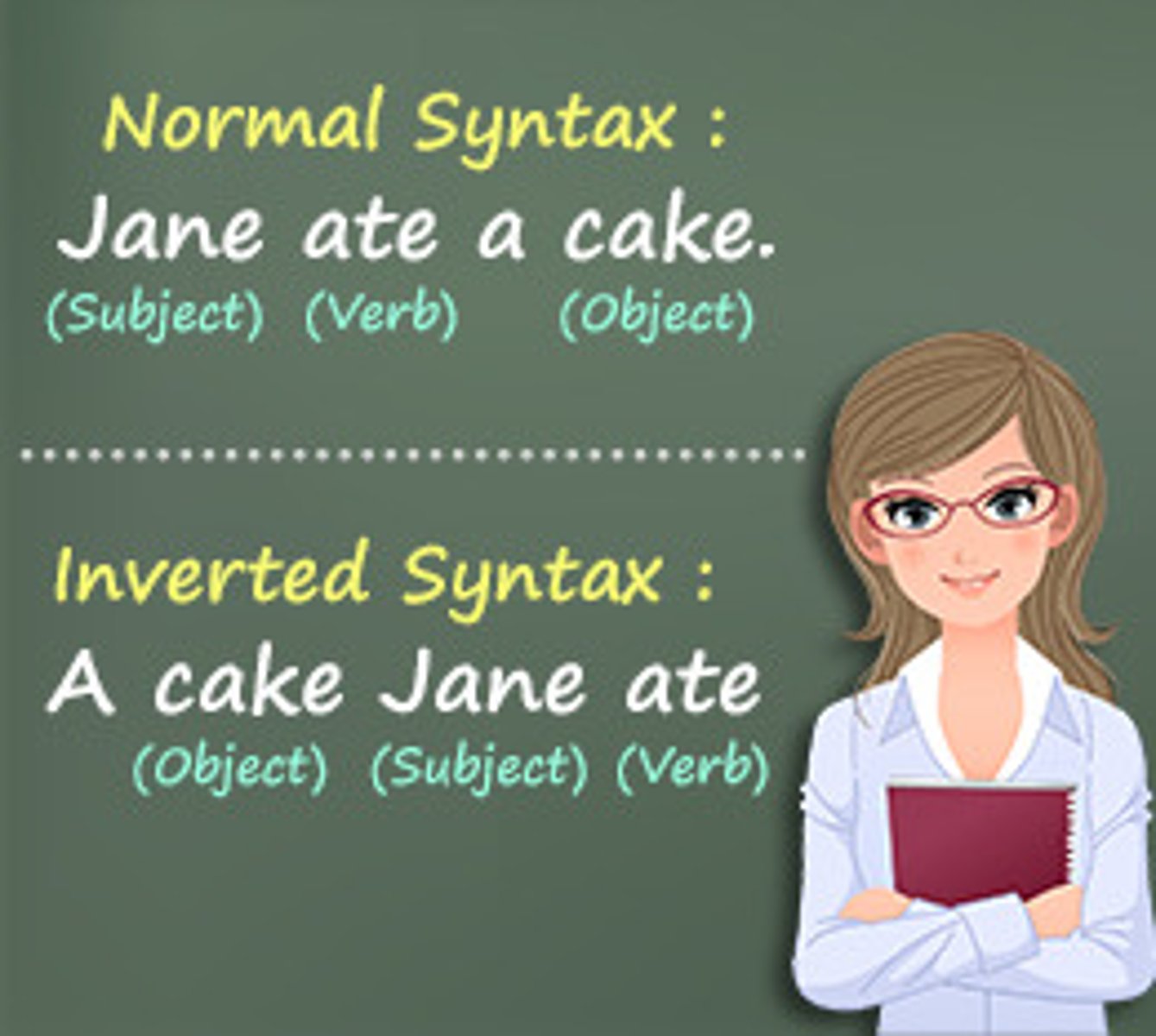
hyperbole
intentional and extreme exaggeration
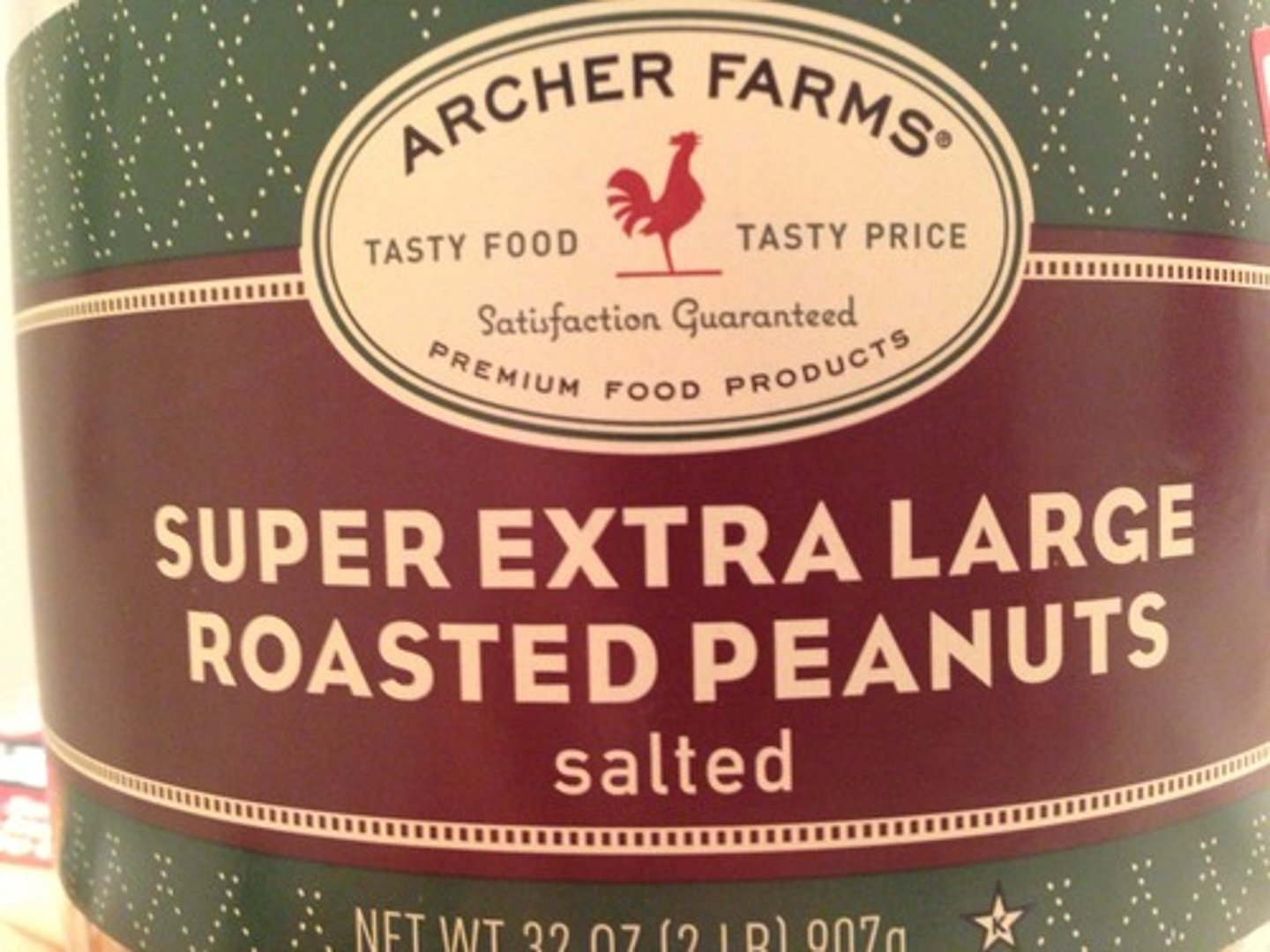
parallelism
making 2+ words, phrases, or clauses equal in part of speech or grammatical structure
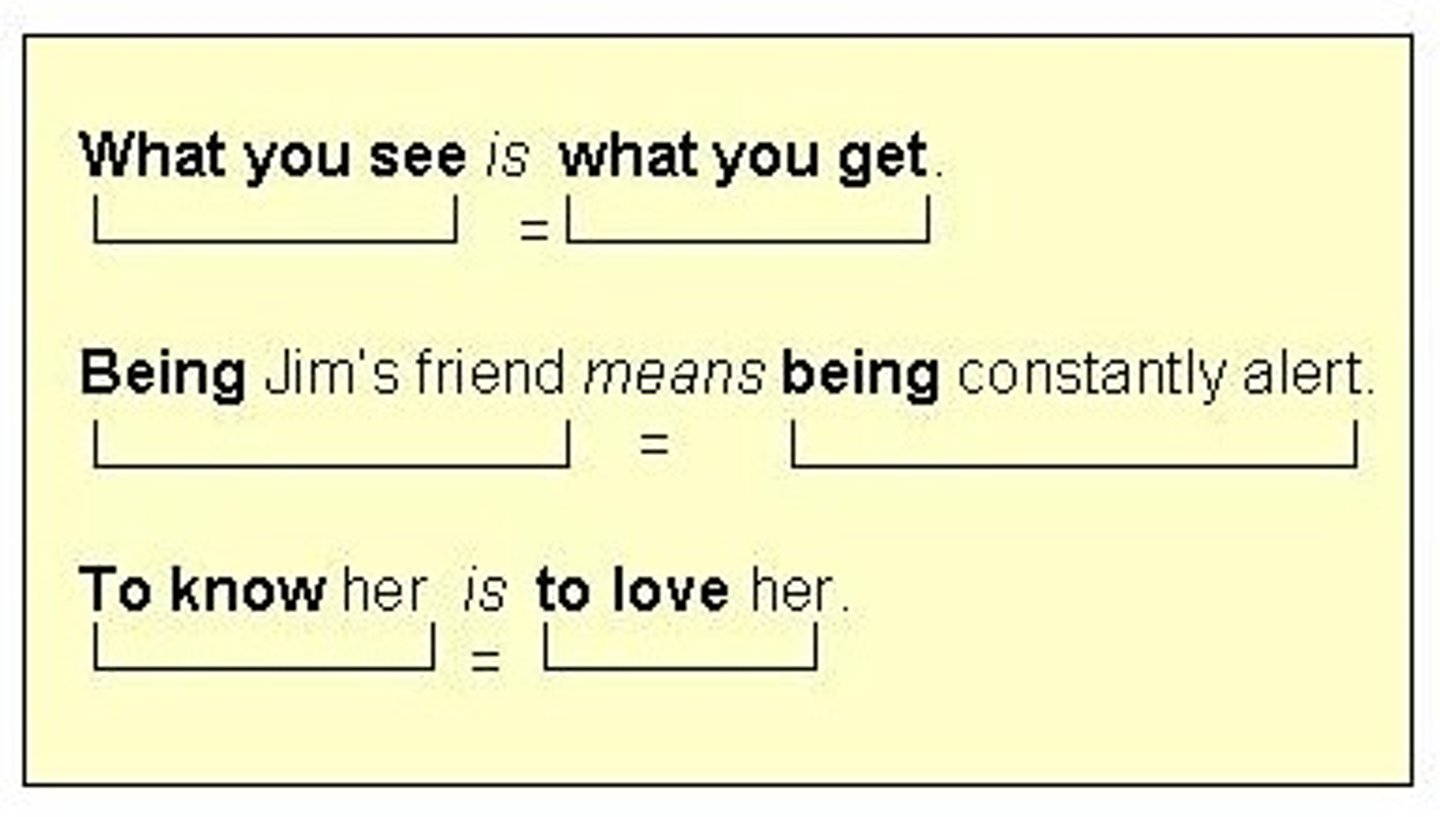
paradox
a seemingly contradictory or absurd statement that may actually express some truth
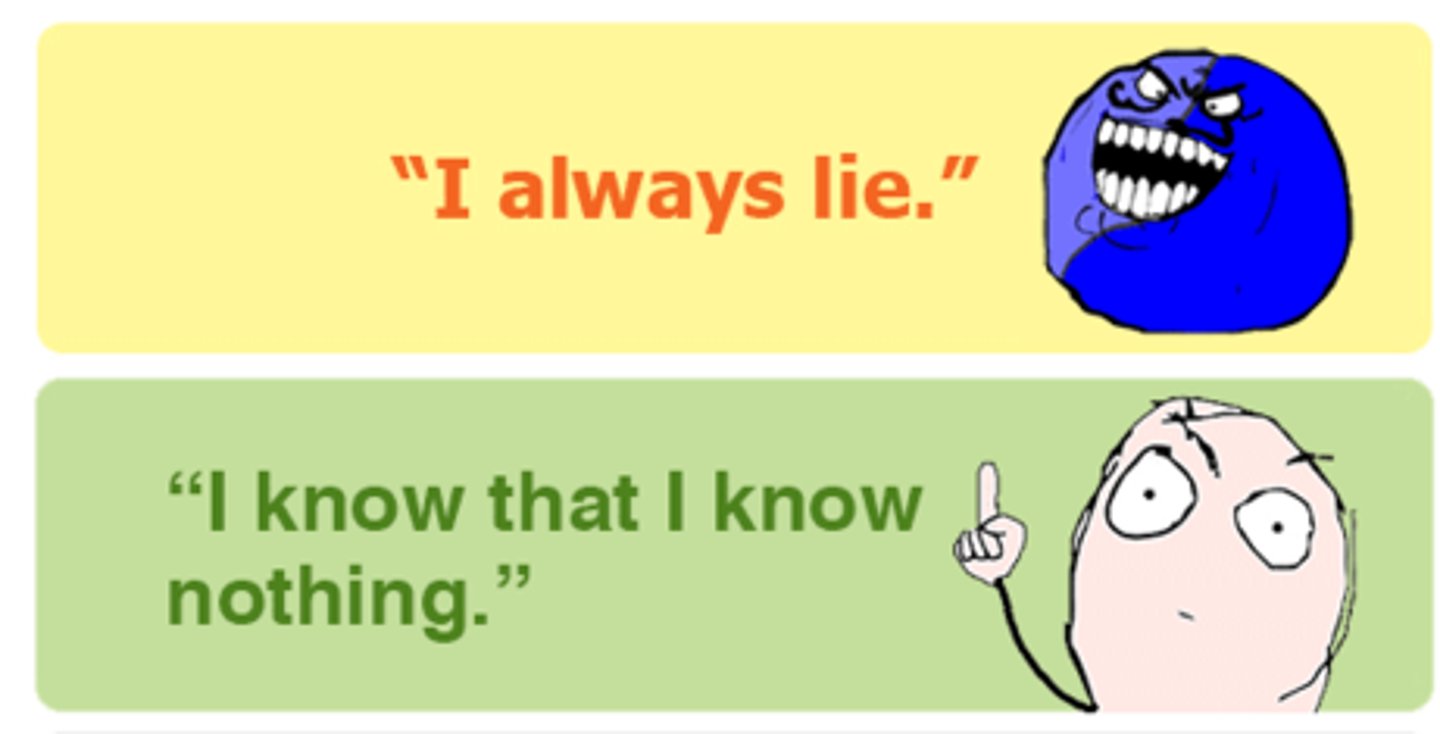
asyndeton
Figure of omission in which normally occurring conjunctions (and, or, but, for, nor, so, yet) are intentionally omitted in successive phrases, or clauses
a string of words not separated by normally occurring conjunctions.
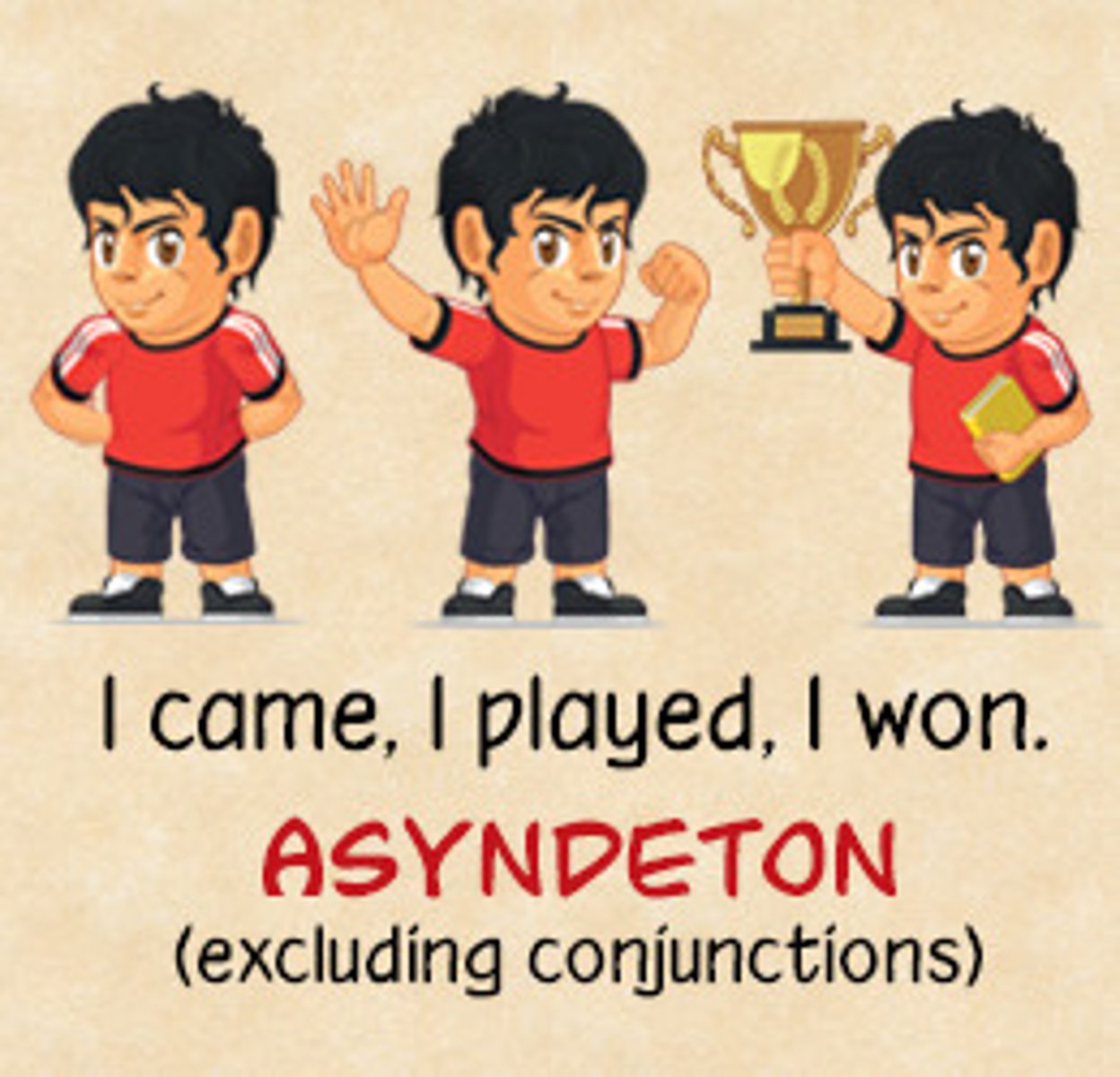
imagery
"word pictures" that appeal to the senses
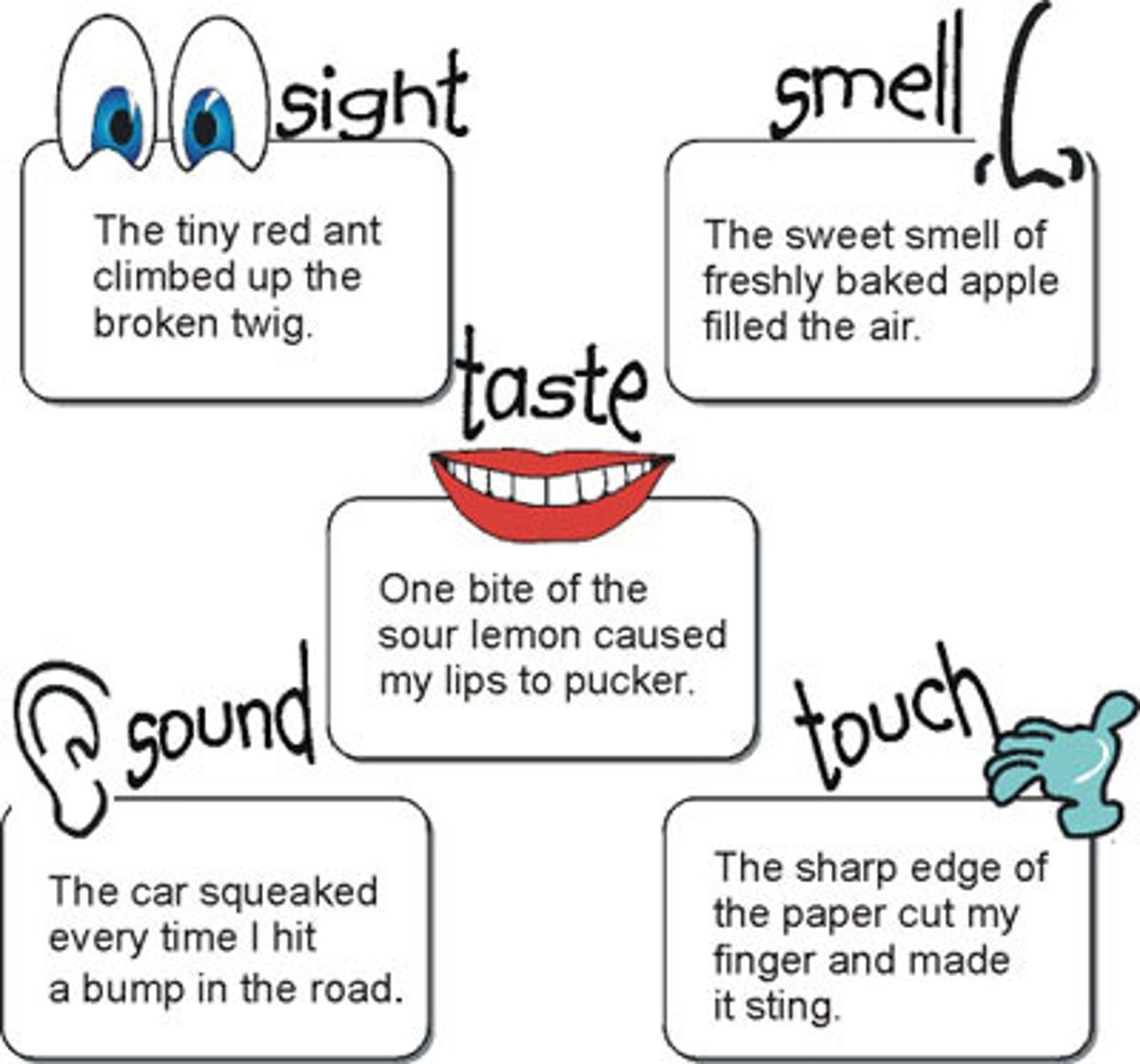
oxymoron
figure that binds together TWO words that are ordinarily contradictory; a TWO WORD paradox
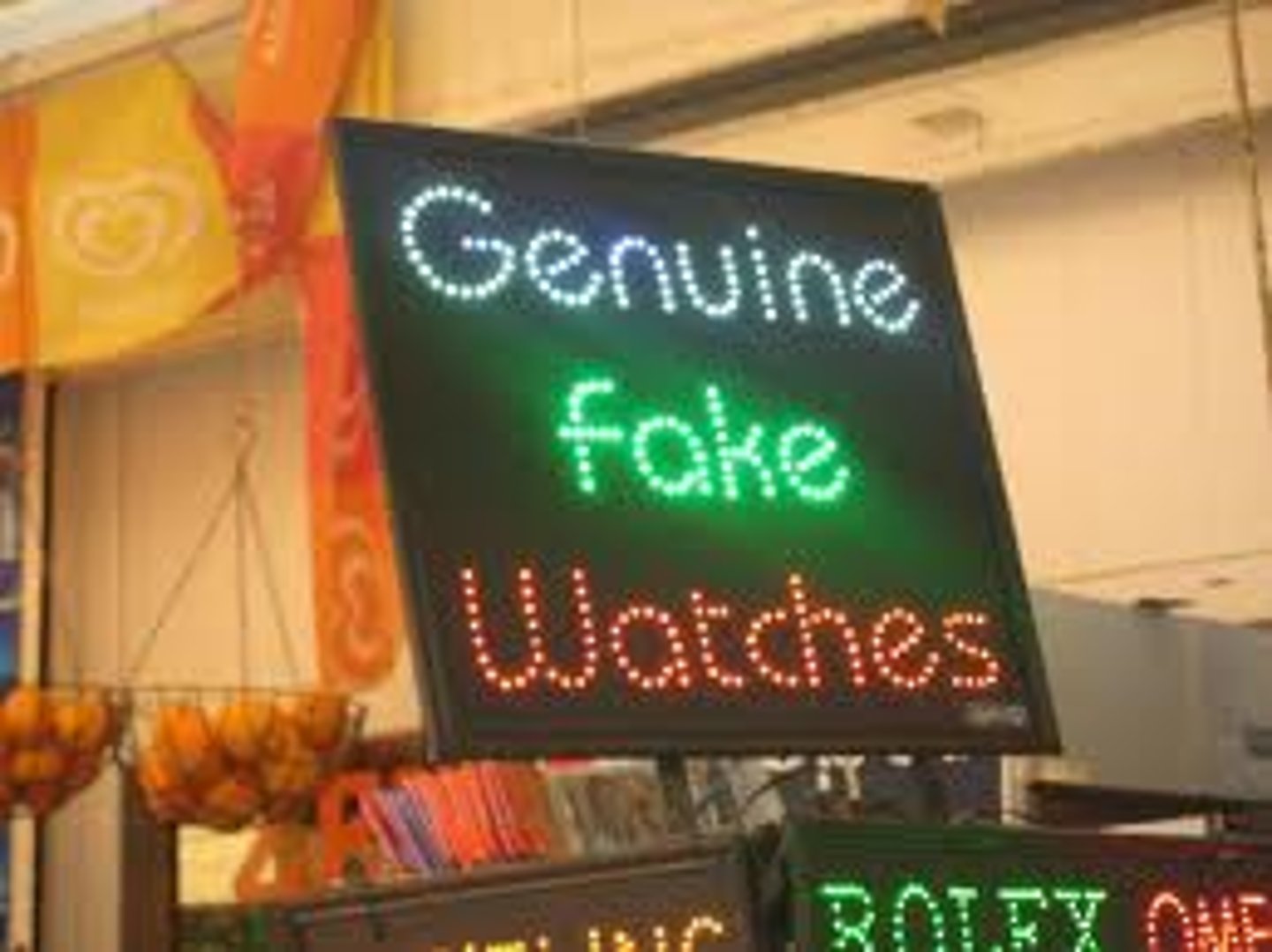
rhetorical question
A question asked merely for effect with no answer expected.
